VETRO A GLASS EXHIBIT
“20th Century Murano, Czech, and American Glass Masters



“20th Century Murano, Czech, and American Glass Masters


“20th Century Murano, Czech, and American Glass Masters

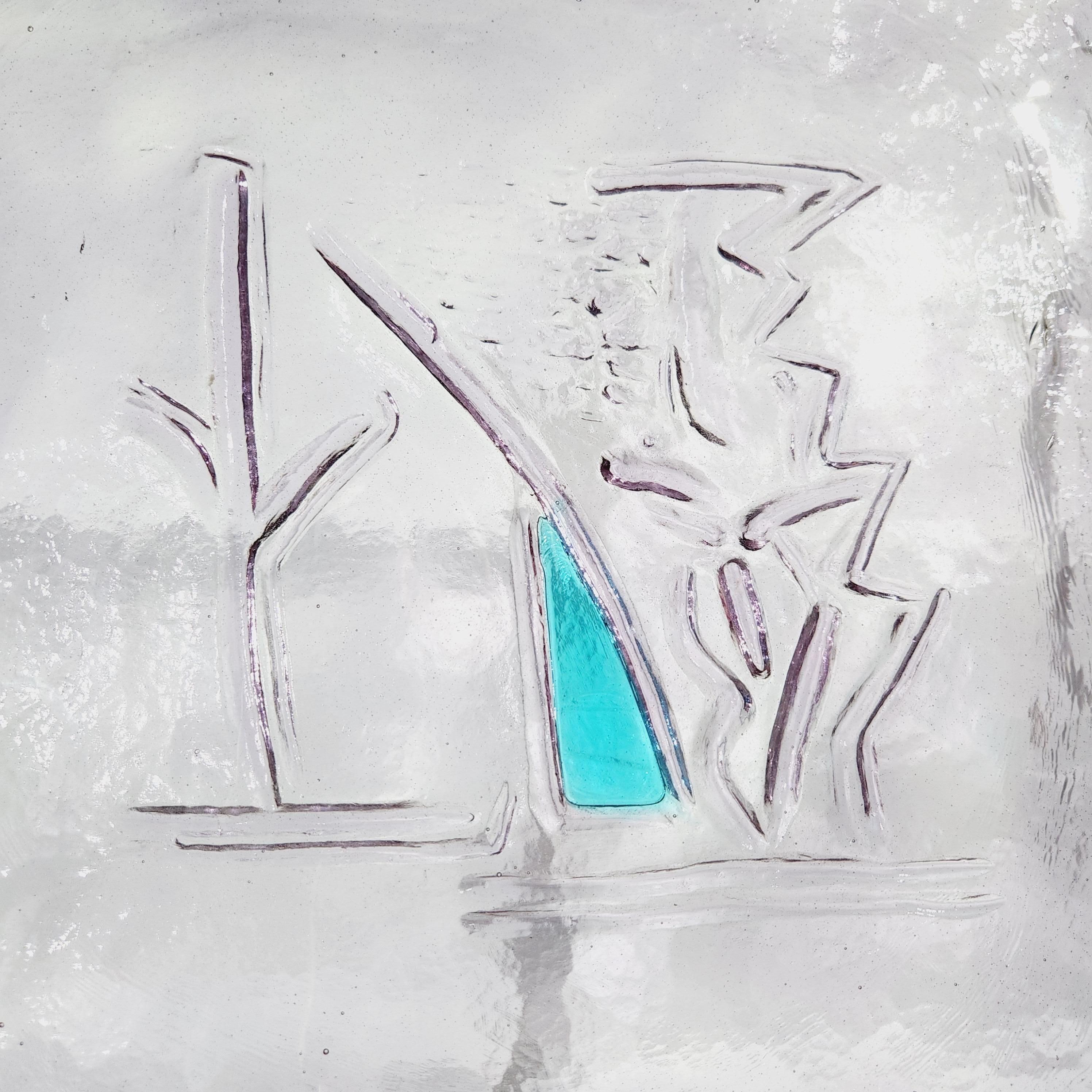

Glass has been a material of immense cultural significance for centuries, employed globally in crafting sophisticated tools, equipment, and instruments for daily use, as well as utilized in the refinement of decorative objects, as well as magnificent works of art. This exhibition, VETRO – A GLASS EXHIBIT, celebrates the unique allure of glass and the spellbinding enchantment it has conjured among diverse cultures and regions.
The curatorial selection is rooted in three primary regions renowned for their contributions to the advancement of glassmaking techniques and applications: Bohemia – Murano - and the United States. A concentrated focus spotlights only the 20th and 21st centuries, a time of stunning proliferation of glass as a favored medium among preeminent designers, artisans, and artists.
Notwithstanding unique traditions, artisanship, techniques, and cultural differences - an abiding passion for probing the limitless potential of glass as a medium underscores the diverse artistic expressions showcased in this exhibition.
Chronologically, we must then begin, academically with Italy. The earliest known written record of glass blowing in the Venetian lagoon can be traced back to 982. During this time, glass factories were still operating in Venice, but in 1291, the Grand Council of Venice mandated that all existing furnaces within the city should be destroyed. As a result, new ones could only be established on the small island of Murano, as a precautionary measure to prevent any fire outbreak that could potentially ravage the Serenissima.
Murano's glass production remained relatively unchanged for centuries, with glassware, chandeliers, and decorative items being crafted in styles that evolved gradually over time. Notably, in the early 17th century, Giovanni Darduin stumbled upon the Avventurina technique, which is characterized by small particles of copper that make the glass sparkle and gleam in a way that was previously unknown.
Around the same time, the Calcedonio technique was invented, which mimics the shades of the stone from which it derives its name, and it is still highly regarded by collectors. However, the most significant transformation in Murano's glass production occurred during the 20th century, with the rise of Paolo Venini, who opened his own glass factory and worked with talented artistic personalities from around the world.
Venini's factory became the most acclaimed during the modern era due to his vision of surrounding himself with talented artistic personalities, such as Napoleone Martinuzzi, Tomaso Buzzi, Carlo Scarpa, and Fulvio Bianconi, among many others. This collaboration was not limited to Italian artists, as Venini also worked with international names such as Tyra Lundgren, Thomas Stearns, Tapio Wirkkala, James Carpenter, and Toots Zinsky.
Nevertheless, Venini was not the only glassmaker in Murano, as other glass factories also played a crucial role in the development of the craft. For instance, Cenedese and Seguso, from the 1950s to the 1970s, brought the Sommerso technique to new heights, thanks to the efforts of their artistic directors, Antonio Da Ros and Flavio Poli, respectively.
It would be unfair to overlook the contributions of other names, including Salviati, Barovier, Zanetti, Rosin, Signoretto, Marco Polo Glass Gallery and Studio, Berengo, and many more who are featured in this exhibition.
th Century Murano, Czech, and American Glass Masters
Another significant revolution in Murano occurred in the 1950s when Egidio Costantini founded the Fucina degli Angeli (Forge of the Angels), bringing internationally renowned artists like Calder, Moore, Picasso, Chagall, Ernst, Arp (who designed the Fucina's symbol: a star), Rubin, and Cocteau (who in 1958 suggested the new name for the previously called Centro Studio Pittori nell'Arte del Vetro di Murano) into the mix.
The profound artistic significance of the innovative glass factory was such that it garnered the attention and financial support from Peggy Guggenheim in 1961. Ermanno Nason, an exceptionally gifted artisan who I had the privilege of knowing well when I authored a book on his career, was one of the master glassblowers who created pieces for Fucina degli Angeli. Some of his distinctive works adorn my personal collection, and he rightfully deserves recognition as one of the most skilled Maestros ever to have worked with glass, alongside Archimede Seguso and Alfredo Barbini.
Even today, Murano continues to produce highly esteemed works of art, and new generations of glass artists have attained remarkable results and elevated their craft to the pinnacle of excellence.
In recent years, Pietro & Riccardo Ferro have impressed the glass-collecting community by taking the art of carving glass to new, previously unexplored heights. Thanks to the steady exchange of ideas and collaborations with artists from across the globe, the small Italian island remains a leading destination for enthusiasts of glass art.
Historically, Bohemian glass, also known as Bohemia Crystal, emanates from what we now recognize as the Czech Republic. The earliest archaeological evidence of its creation harkens back to the mid1200s. This beguiling material's peerless quality and captivating beauty has long held the fascination of collectors worldwide, from diminutive mementos to grandiose chandeliers, sculptures, and figurines. Among the preeminent, polished names in this field, we may cite Moser, Rückl, and Crystalex.
In times past, Czech crystal chandeliers lent their splendor to the palaces of French King Louis XV, Empress Maria Theresa of Austria, and Empress Elizabeth of Russia. At present, magnificent luminaires still bedazzle such esteemed venues as La Scala in Milan, Teatro dell'Opera in Rome, the Palace of Versailles, the Hermitage Museum in St. Petersburg, and the royal palace in Riyadh. Bohemian glass's preeminence rests on its inimitable cutting and engraving techniques, uniquely tinted hues, and unparalleled finesse.
The region is a nexus for numerous glass studios, and artists from across the world who pilgrimage here to absorb the glassmaking techniques and collaborate with skilled artisans to create their masterpieces.
At New River Fine Art, we have forged a recent representation with two gifted Czech glass artists: Wesley Neal Rasko, a Canadian of second-generation Czechoslovakian heritage, who discovered his passion for the traditional art of glassmaking while traveling in the region and has since endeavored to develop and reinterpret its splendid heritage, and Latchezar Boyadjiev, a Bulgarian-born artist residing in the United States, who fashions stunning pieces that conform to the finest Czech traditions of carving and burnishing glass.
The American Studio Glass movement is intimately connected to the Venetian lagoon. It all began in the late 1960s, when Dale Chihuly moved to Murano and began working with Venini, studying glass as a medium. Chihuly was not the first American to have access to the Venini premises, since before him artist such as Kenneth Scott, Eugene Berman, Charles Lin Tissot, and Thomas Sterns have already worked at this prestigious glass factory.
But what made Chihuly experience special, was his vision and a brand-new concept: artist teaching artist. Along with the Philanthropists, Anne and John Hauberg, he established the Pilchuck Glass School in Seattle in 1971, organizing summer camps for artists eager to explore, share, and teach the potential of glass. This was an unprecedented approach to what had hitherto been a secretive and somewhat insular environment. It was a distinctly American approach, characterized by open competition, great enthusiasm, and the sharing of secrets and techniques with others.
Today, the Pilchuck Glass School is among the most renowned destinations for glass lovers, and over the years, several Murano masters - despite the notion that the island's secrets should not be shared overseas - have been persuaded to travel to Seattle to teach their techniques. Among the most prominent names are Lino Tagliapietra, perhaps the most celebrated living master glassblower; Pino Signoretto, who passed away at the end of 2017 and for whom Dale Chihuly, who created some incredible pieces with the Maestro over his career, organized a memorial day after his passing; and Loredano Rosin, the Maestro who inaugurated the very first course on massive sculptures at Pilchuck. Today, the list of American glass artists worthy of recognition is far too long to be enumerated in this modest preface. At New River Fine Art, we are delighted to work and collaborate with some of them, such as Alex Gabriel Bernstein, an outstanding interpreter of the medium both before and after the fusion, and Marlene Rose, whose archeological-looking pieces are a unique offering in the art glass community.
Of all the insights that could be drawn from a thousand years of glassmaking, perhaps the most critical is that all of the work, passion, and effort that has gone into the craft has contributed to catapulting glass to an entirely new and elevated level in the realm of art: a medium that can be utilized to experiment and discover new avenues for artistic expression, a medium that has been brought into being by the four elements - earth, water, air, and fire - and combined with human imagination and spirit, has no limits. It is this medium that we aspire to honor with our humble exhibition.
Sergio GnesinSergio Gnesin, a distinguished art consultant and Murano glass collector, hailing from the Venetian region of Italy and currently based in Fort Lauderdale, Florida, USA, boasts over 25 years of extensive experience in the field. He has cemented his position as a revered connoisseur and dealer of Murano glass and has authored the critically acclaimed book, " Vetri di Ermanno Nason / The Glass Sculptures of Ermanno Nason" in 2003, along with several other catalogs for prestigious glass factories and exhibitions. Gnesin's expertise in the glass art domain has led to a long-standing collaboration with New River Fine Art, where he has been instrumental in organizing a series of successful glass exhibits since 2016, a testament to his exceptional accomplishments and remarkable contributions to the field. Additionally, his impressive roster of collaborations with renowned glass artists and institutions, including Pietro and Riccardo Ferro, Emanuel Toffolo, and WMODA, further underlines his outstanding reputation in the industry.
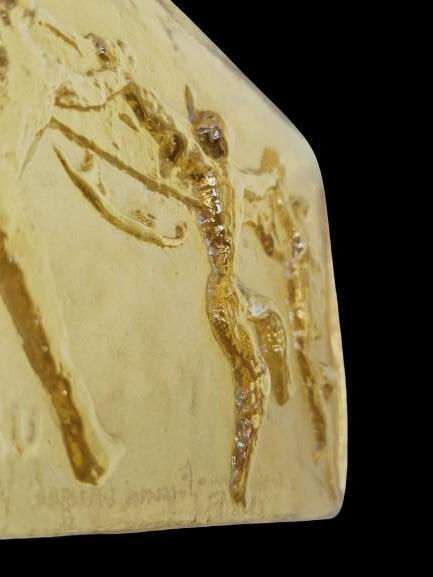
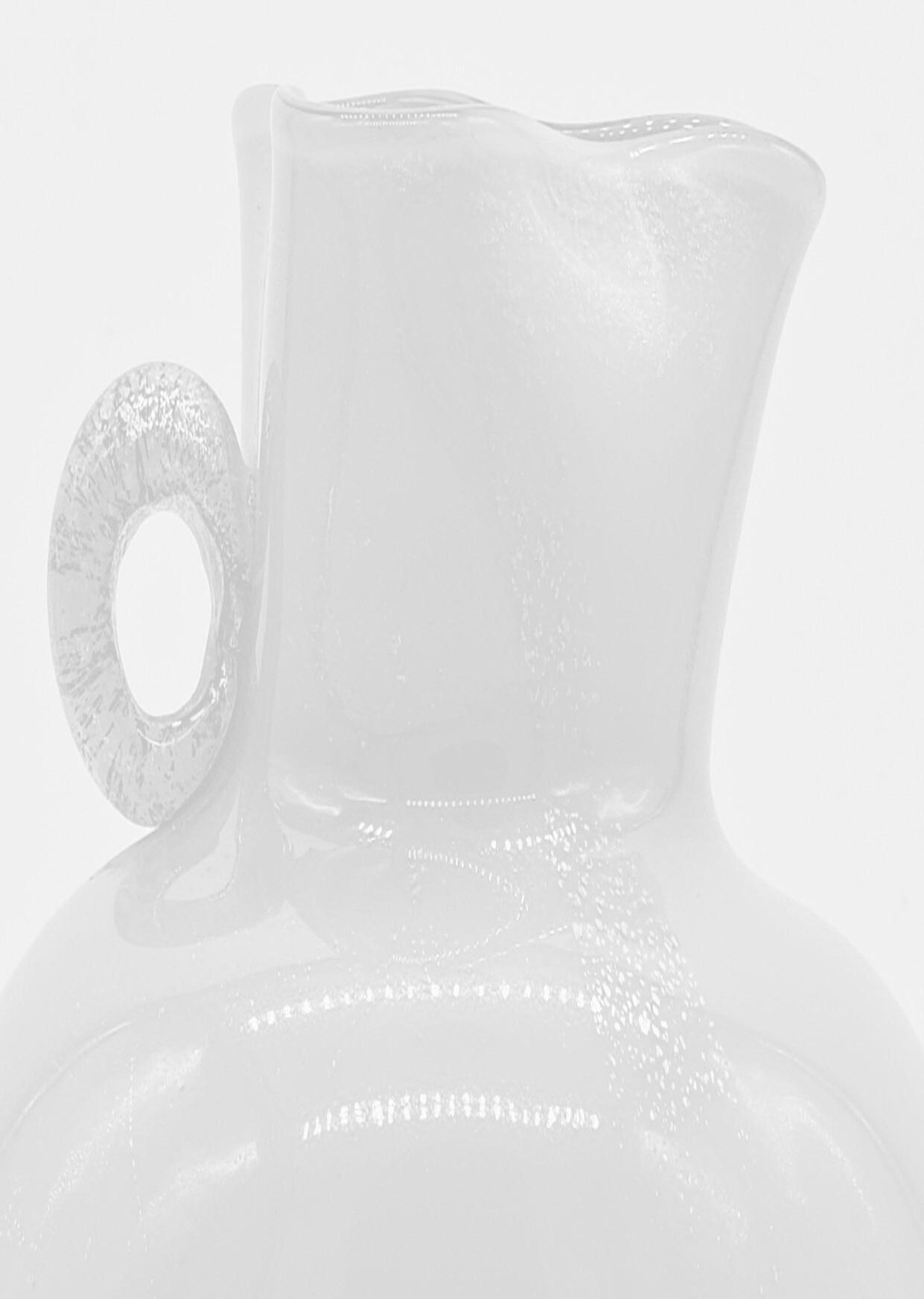


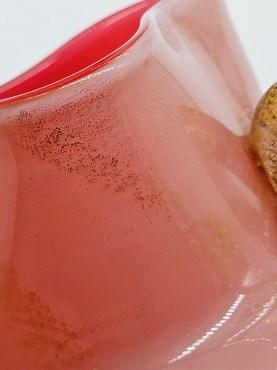
Tomaso Buzzi for Venini & C., Murano circa 1933. Small jag in several, thin layers of glass one over another (incamiciato) with gold leaf applied. Oval body with round base. The small handle and base are in amber glass covered with gold leaf. It corresponds to model #3439 of the Venini Blue Catalog. H. 6.125 x L. 5.25 x D. 4 in.


Excellent Vintage Condition


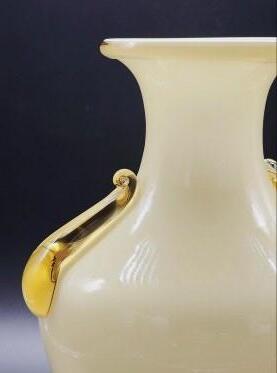



Deco vase in incamiciato (thin layer over layer) lattimo (milky glass) and light pagliesco (straw color) glass with applied handles. Artistica Vetreria e Soffieria Barovier, Seguso e Ferro, Murano 1933-1937. Excellent Vintage Condition, some limescale and sign of regular use inside the vase. H. 11; Diam. 7.5 in

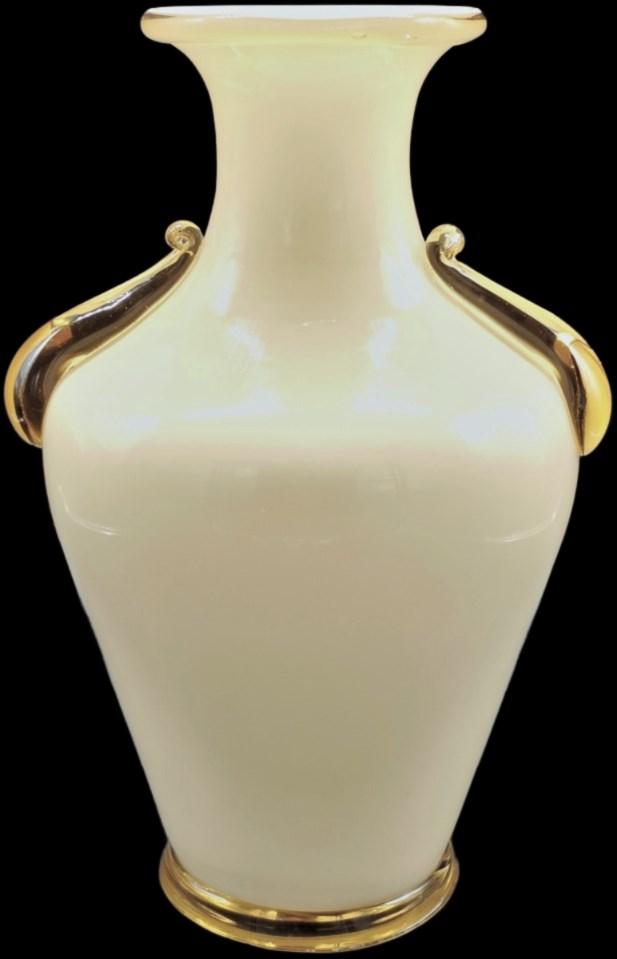

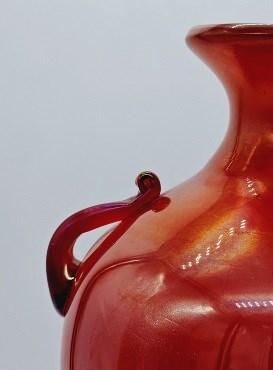
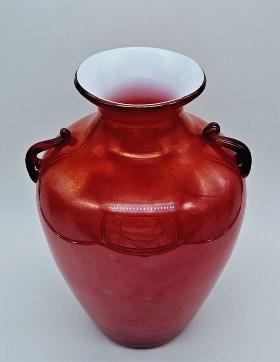
Deco vase in incamiciato (thin layers of glass one over another) lattimo (milky glass) and red glass with applied handles, strong iridescence all over the surface. Artistica Vetreria e Soffieria Barovier, Seguso e Ferro, Murano 1933-1937. Excellent Vintage Condition, some limescale and sign of regular use inside the vase. H. 12; Diam. 8.25 in.

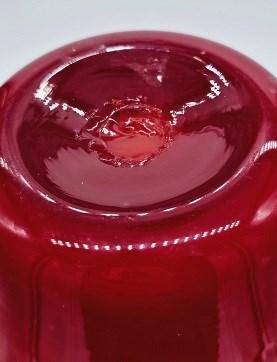

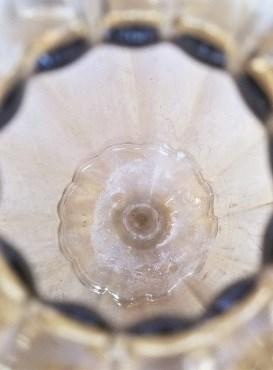
Large Costolato (ribbed) glass vase in the style of Napoleone Martinuzzi, Murano circa 1930. The color is called Pagliesco (straw yellow). Excellent Vintage Condition, with limescale on the inner surface. H. 14.6; Diam. 6.5 in.





Large Costolato (ribbed) glass in the style of Napoleone Martinuzzi, Murano circa 1930. The color is called Verdino (light green). Excellent Vintage Condition, with limescale on the inner surface. H. 13.25; Diam. 6.25.in


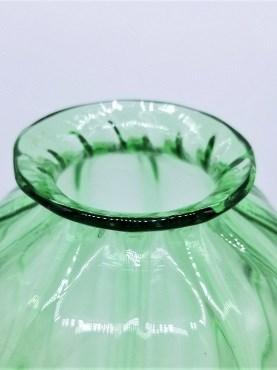



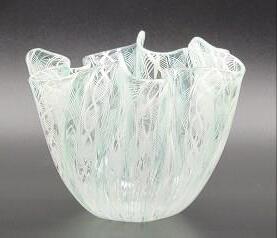
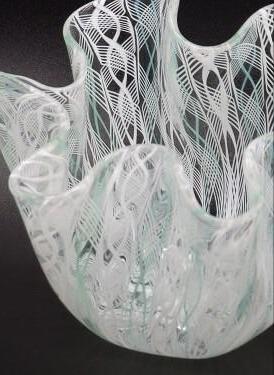

Miniature vase model Fazzoletto (handkerchief), from a collaboration between Fulvio Bianconi and Paolo Venini for Venini & C., Murano 1949-1950. Acid etched signature on the bottom. H. 3.125; Diam. 4.375 in. Excellent Vintage Condition.



Large glass leaf by Tyra Lundgren for Venini & C., Murano 1950s. It corresponds to model #2695 of Venini Blue Catalog; designed in 1938. Three-lines acid etched signature venini/murano/ITALIA H. 2.5 x L. 16.25 x W. 13.25 in. Excellent Vintage Condition. Metal stand included.
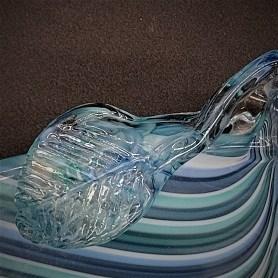

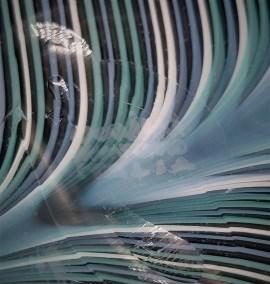




Glass bowl in the shape of a leaf in lattimo (milky glass) half filigree by Tyra Lundgren for Venini & C., Murano 1950’s. It corresponds to model #2645 of Venini Blue Catalog; designed in 1938. Three-lines acid etched signature venini/murano/ITALIA Fragment of an original paper label. H. 3.5 x L. 9.875 x W. 7 in. Excellent Vintage Condition.

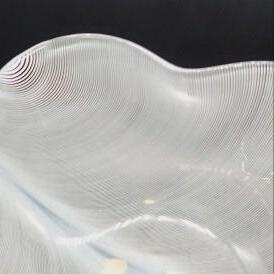
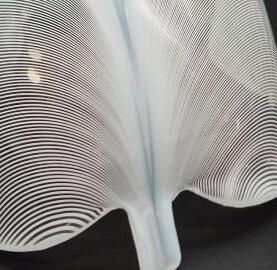


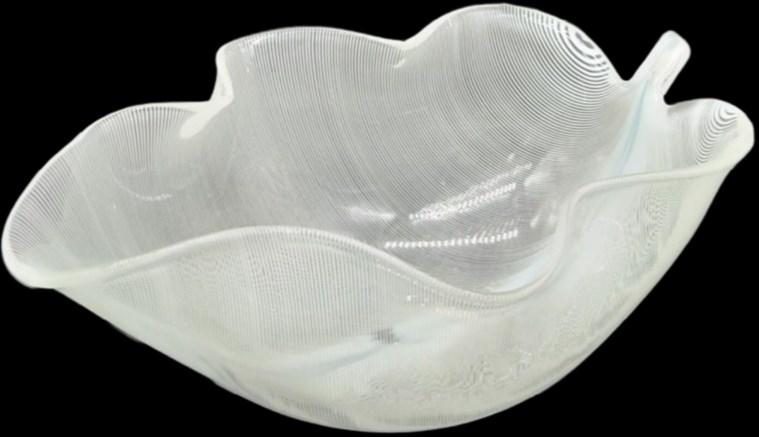
Glass figurine from the Commedia dell'Arte by Seguso Vetri d'Arte, Murano 1950s. The body is made of white and green twirled glass rods, while several parts such as hat and sleeves are in lattimo (milky glass) with gold leaf. Emerald green details and a black mask complete this high-quality figurine. The Arlequin stands on a round retorto rigadin foot with a decorative support in gold and crystal. H. 10.25 x W. 5 × D. 4.25 in. Excellent Vintage Condition.


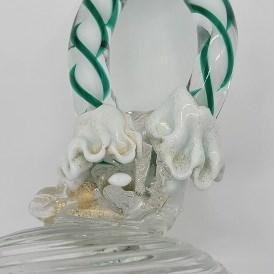
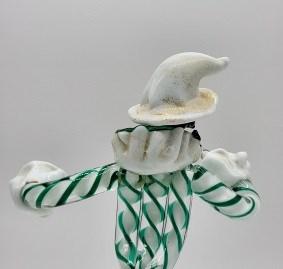
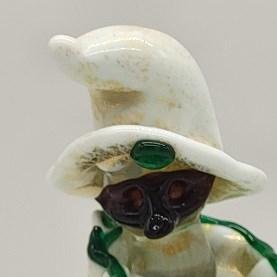

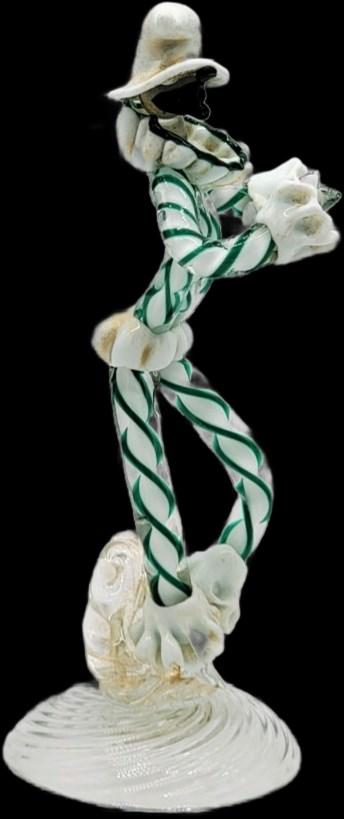
Small elephant in transparent bulicante (with inner air bubbles) glass, Murano 1950s.



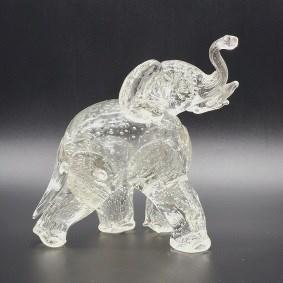

H. 6 x L. 6.25 x D. 3.25 in.
Excellent Vintage condition

Tribute to the Opera by Ruggero Leoncavallo Pagliacci, 1892. Large figurine of a singing clown, Vetreria Fratelli Toso S.a.s., Murano 1950s, in opalino (opalescent) sommerso (multy-layers) glass into rigadin cristallo Lattimo (milky glass) with gold leaf for hat and shoes. Gold leaf into transparent glass for the hands. Applied colorful glass for the face, collar, and tie. Transparent round base. Original label on the bottom.
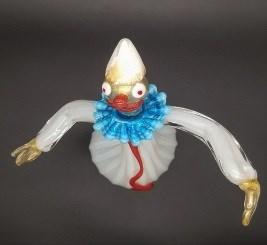
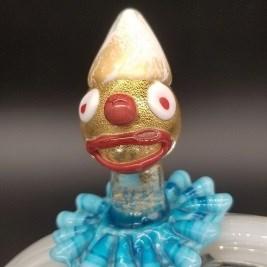
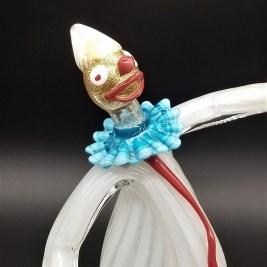
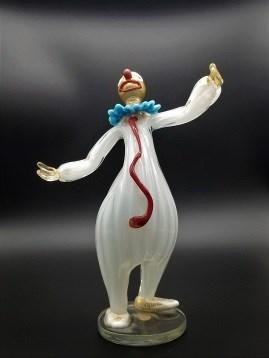

H. 12.75 x W.9 x D.6.25 in. Excellent Vintage Condition

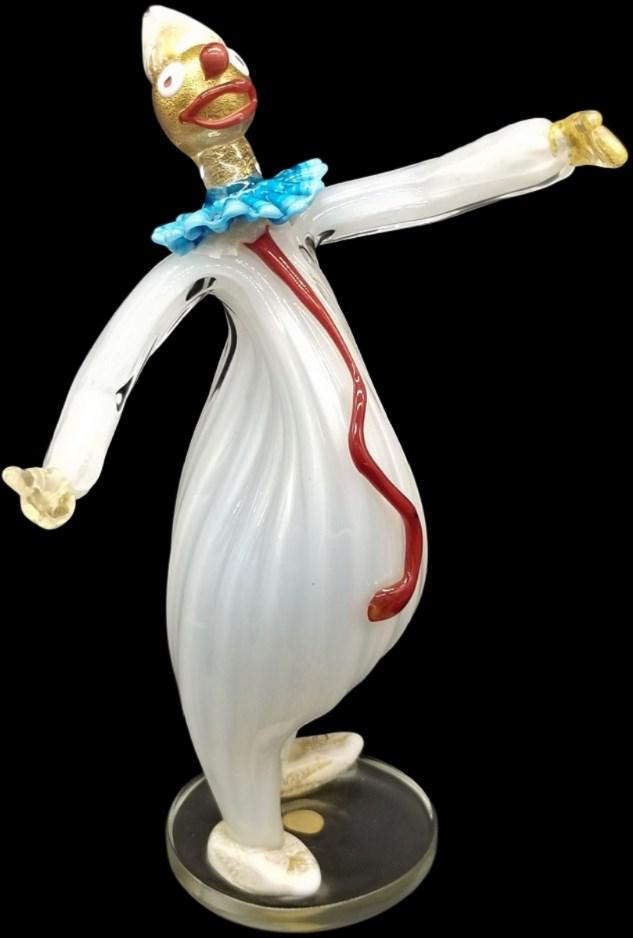
Vase in sommerso glass (multiple layers of glass one into another) by
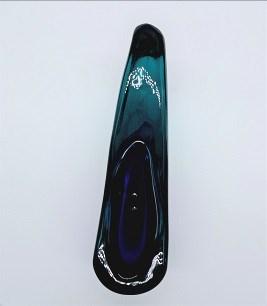
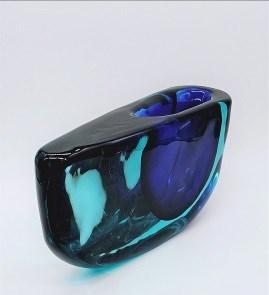

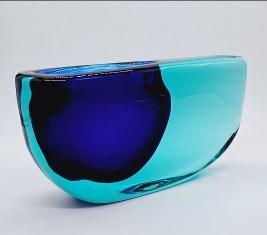
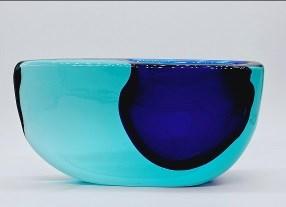

From an original idea of Jean Cocteau, an amber cast glass tile with iridescent surface, dated 1960 and depicting 3 persons dancing with Venice as background. Made in collaboration with (and for) Egidio Costantini, founder of Fucina degli Angeli, (Forge of the Angels), Murano.





Signed and dated on verso. Glass only: H. 5 x L. 7.125 x D. 1 in.
Overall: H. 8.5 x L. 12.25 x D. 4 in Excellent Vintage Condition. The piece comes with a custom Lucite stand.



Group of 4 rare, detailed, and refined Oriental figurines, 2 males and 2 females, in seta (silk) glass, a type of Opalescent glass produced at Vetreria Artistica Cenedese glass-factory during the ‘60s. Execution Ermanno Nason. Standing on a black round base, they are perfect in every detail and show the excellence of Nason's skills. The green one is signed and dated 1967. H. from 8.625 to 8.75 in.



Large, irregular plate in sommerso glass (spots in different colors into transparent glass) Design by Luciano Gaspari for Salviati & C., Murano 1960s. Signed. H. 2 x L. 16 x W. 12.5 in. Very Good Vintage condition.
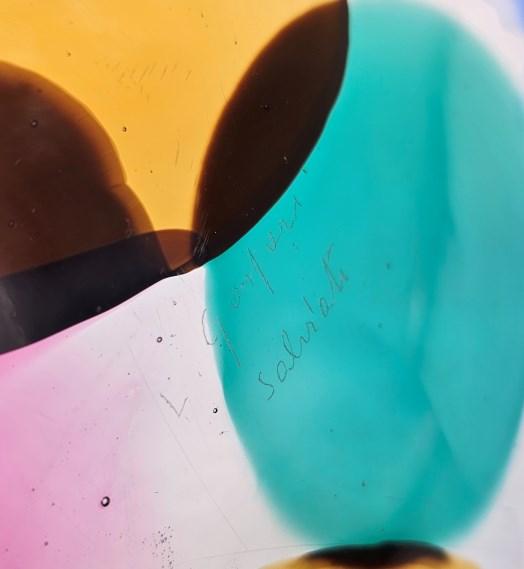


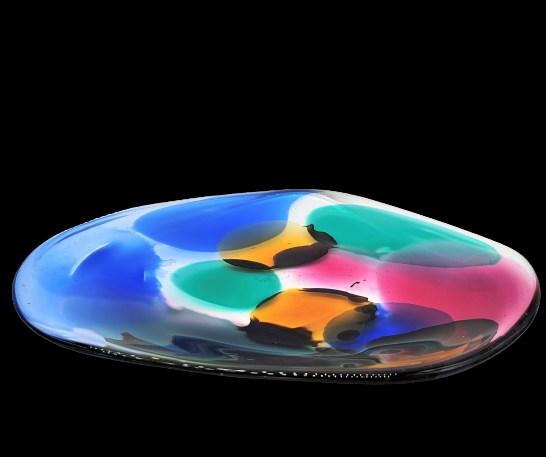


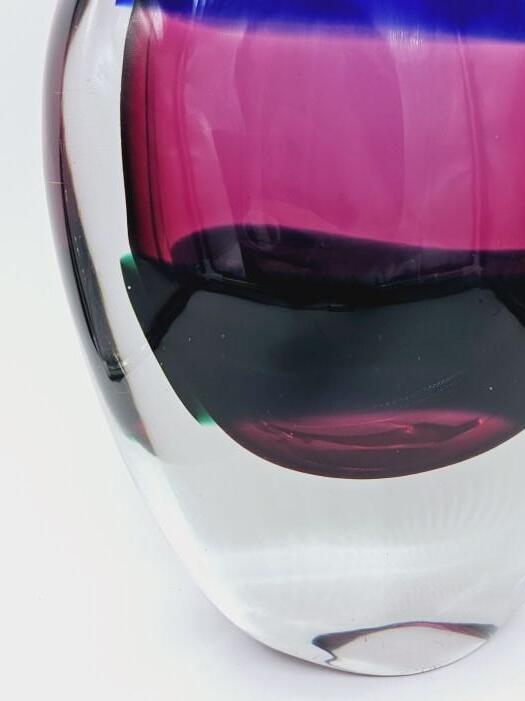


Murano vase in sommerso (multiple layers of glass one into another) by Antonio da Ros for Gino Cenedese & Figlio, 1970s. 2 different original labels: one on the side, one on the bottom. H. 11 x W. 6.75 x W. 3 in. Excellent Vintage Condition.



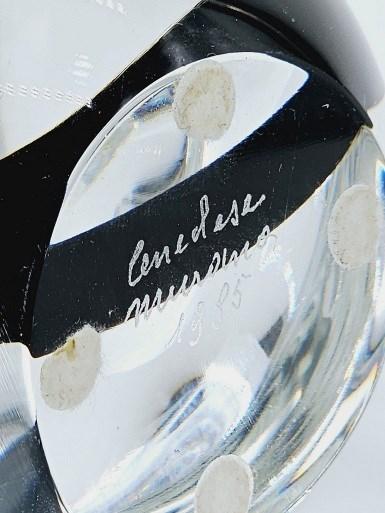

Tall, tapering-shaped with a narrow neck vase in Sommerso glass (multiple layers of glass one into another) showing a green inner drop with banding. Designed by Luciano Gaspari for for Salviati & C., Murano 1970s. Signed.
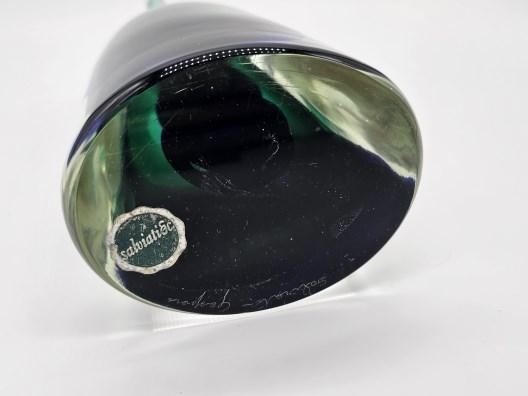
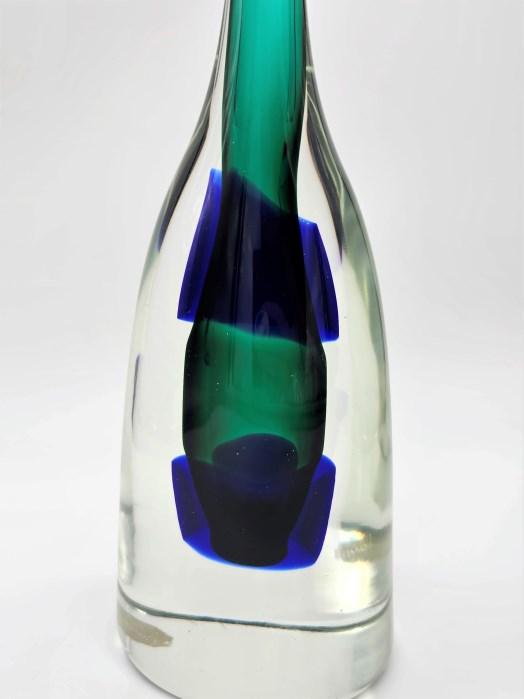
H. 12.75 x W. 4.25 x 3.25 in. Excellent Vintage Condition.


Oval, short vase, with a gray Fenicio decor all over the surface, design by Antonio Da Ros for Gino Cenedese & Figlio, Murano 1970. Signed and dated on the bottom.
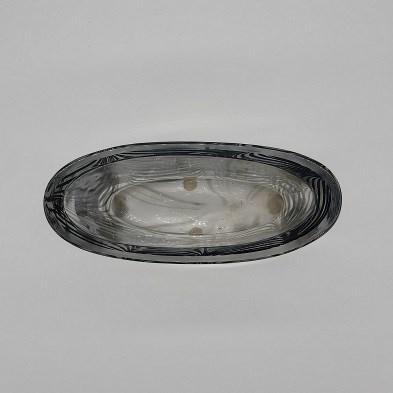
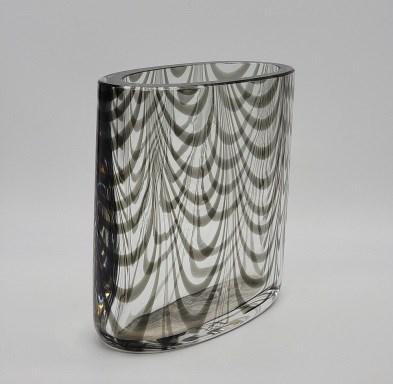
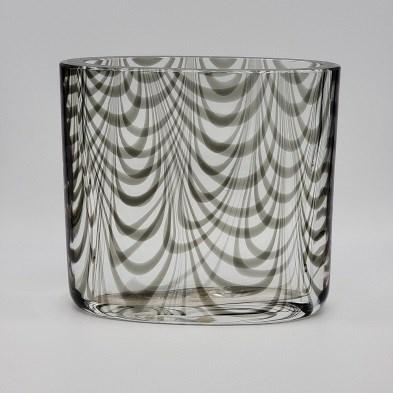
H. 7 x W. 7.125 x D. 3.25 in.
Excellent Vintage Condition

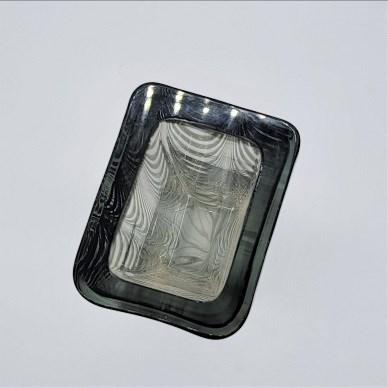




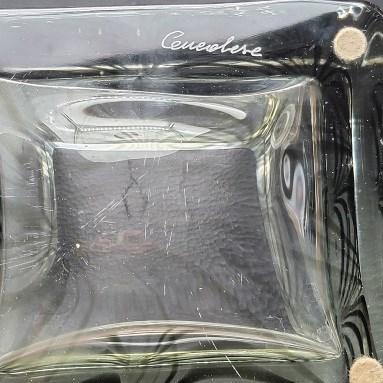

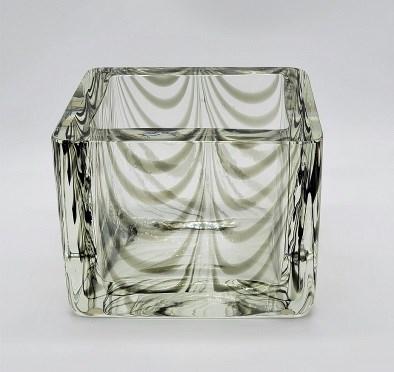
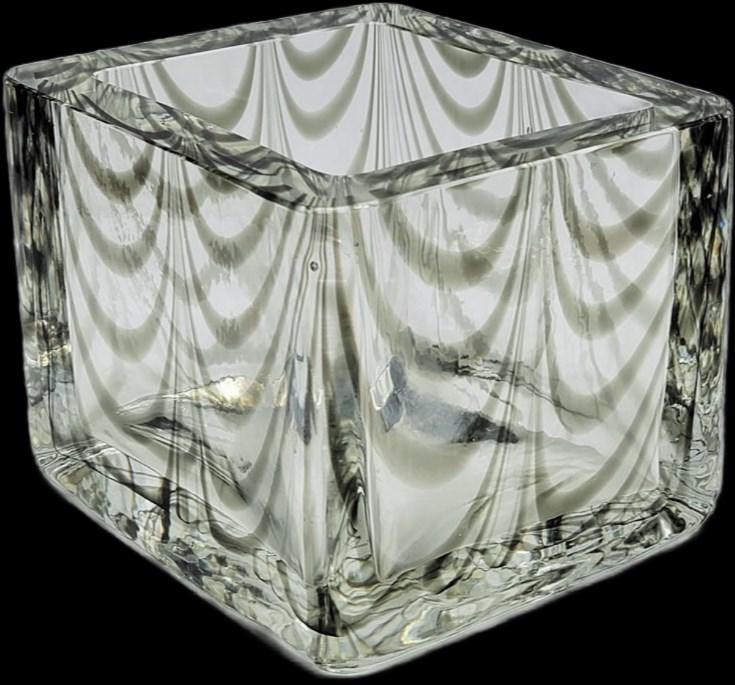
Murano glass vase with inclusions of avventurina, (a mixture of glass and copper), colorful glass rods and other patches, Angelo Rinaldi, Murano 1975. Etched surface. It wears an old label from an Italian Art Show (1994). Signed and dated. H. 11.5 x W. 6.75 x D. 4.25 in. Very Good Vintage condition.
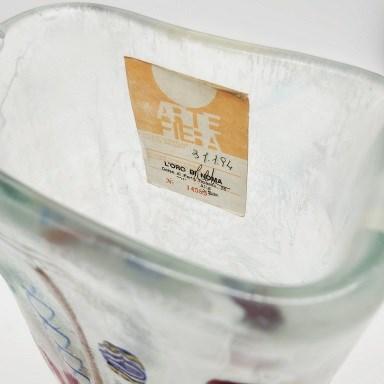

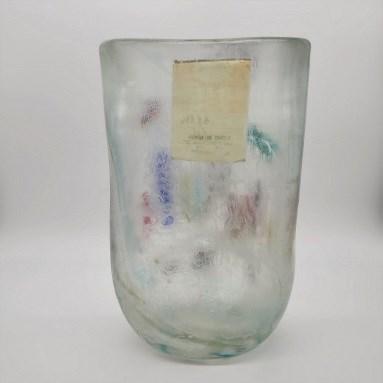


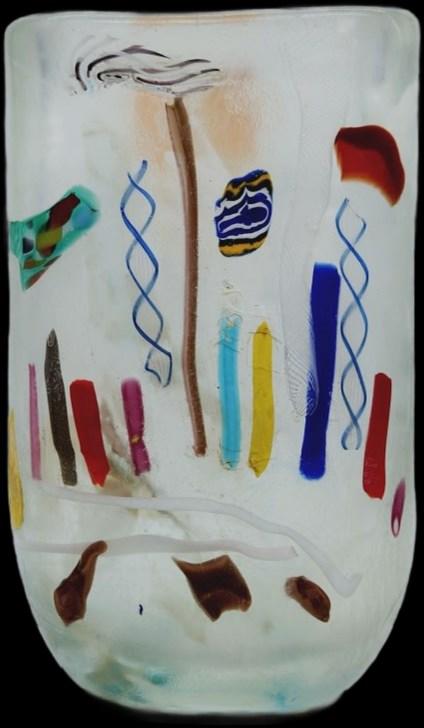
Vase in sommerso glass (light blue into transparent) by Antonio Da Ros for Gino Cenedese & Figlio, Murano 1982.

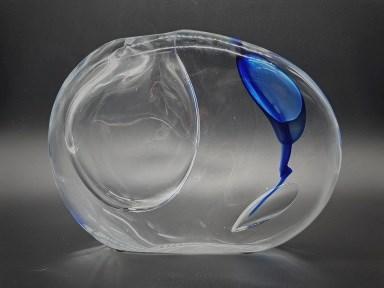
Execution Fabio Tosi. Signed with a dedication to the original buyer and dated. H. 8.5 x L.11.5 x D. 3.25 in. Excellent Vintage Condition.
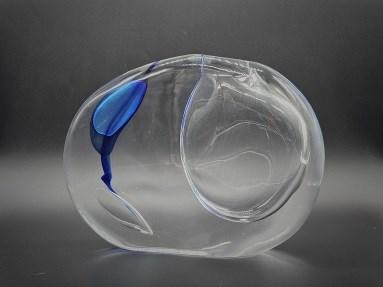
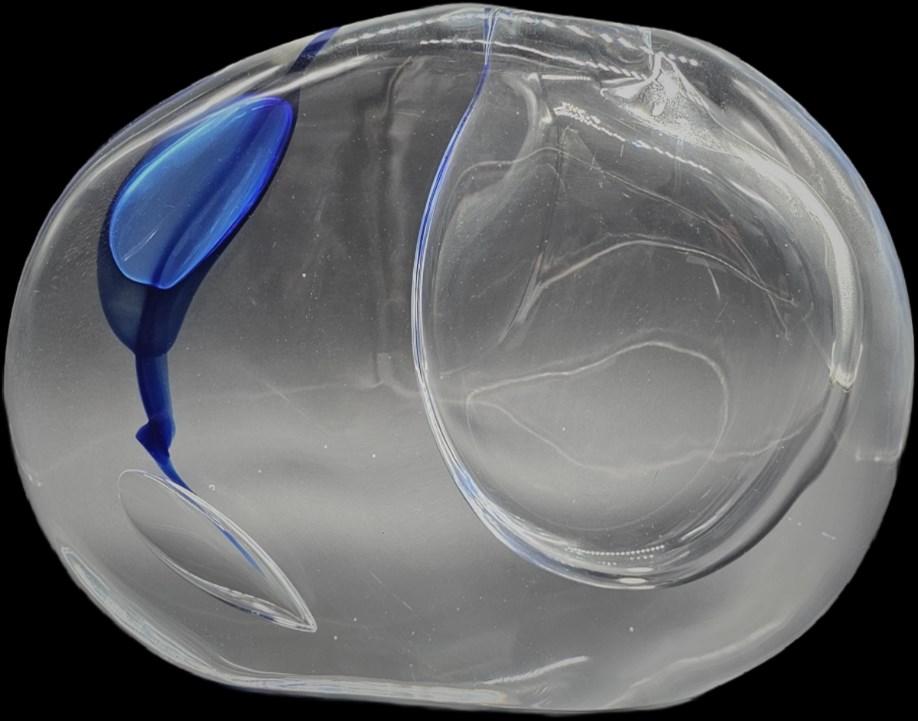
Murano vase in sommerso (multiple layers of glass one into another) by Antonio da Ros for Gino Cenedese & Figlio, Murano 1983. Pink and emerald green into transparent glass. Original label, signed and dated. H. 9.75 x W. 6.625 x D. 2.875 in. Excellent Vintage Condition.

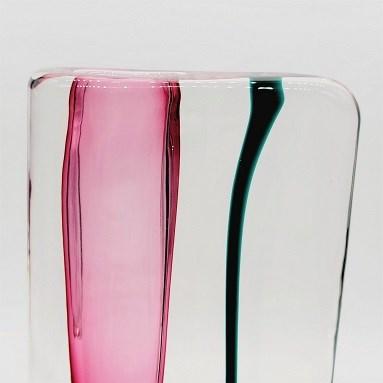

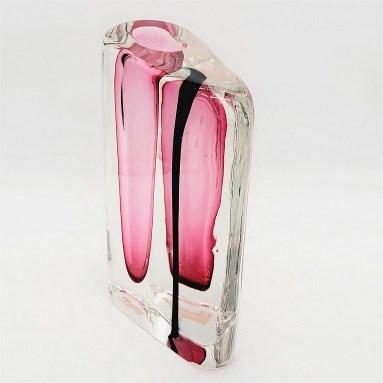


Vase in sommerso glass (dark green into Alessandrite, a type of glass that changes color under different condition of light, passing from purple to light blue) by Antonio Da Ros for Gino Cenedese & Figlio, Murano 1983.

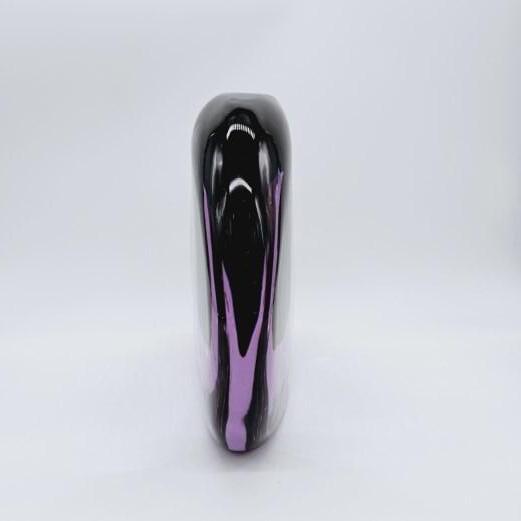

Execution Fabio Tosi. Signed and dated.
H. 8.25 x L.10 x D. 3.25 in.
Excellent Vintage Condition.
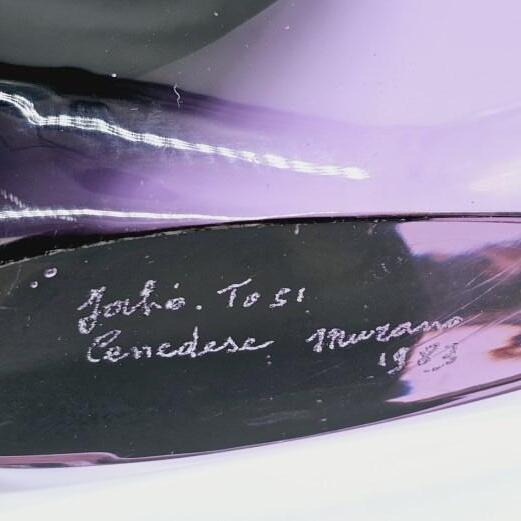
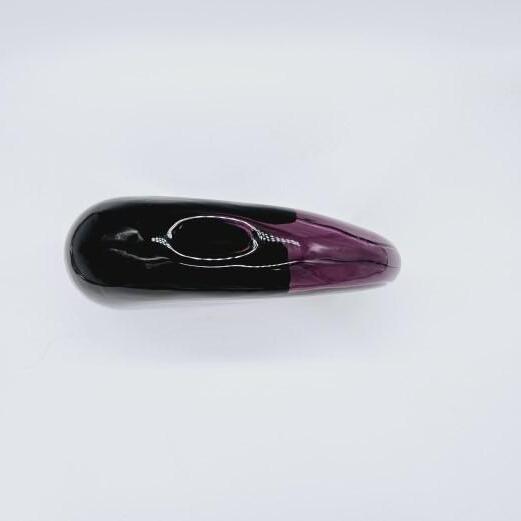

Bird in sommerso glass (dark green into Alessandrite, a type of glass that changes color under different condition of light, passing from purple to light blue) by Antonio Da Ros for Gino Cenedese & Figlio, Murano 1983.


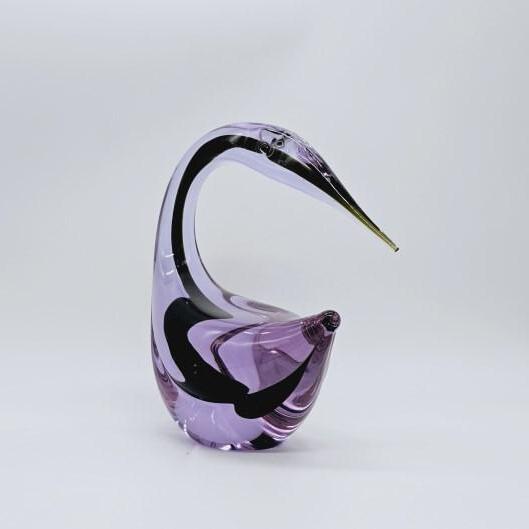

Execution Fabio Tosi.
Signed and dated.
H. 8.25 x L. 8 x D. 3.25 in. Excellent Vintage Condition.

Birds in sommerso glass (black into transparent) by Antonio Da Ros for Gino Cenedese & Figlio, Murano 1985. Execution Fabio Tosi. Both signed and dated.




Measures:
Taller one: H.16.125 x L.6.25 x D.3.5
Shorter one: H.8.75 x L.9.25 x D.3.5
Excellent Vintage Condition. Sold as a pair.
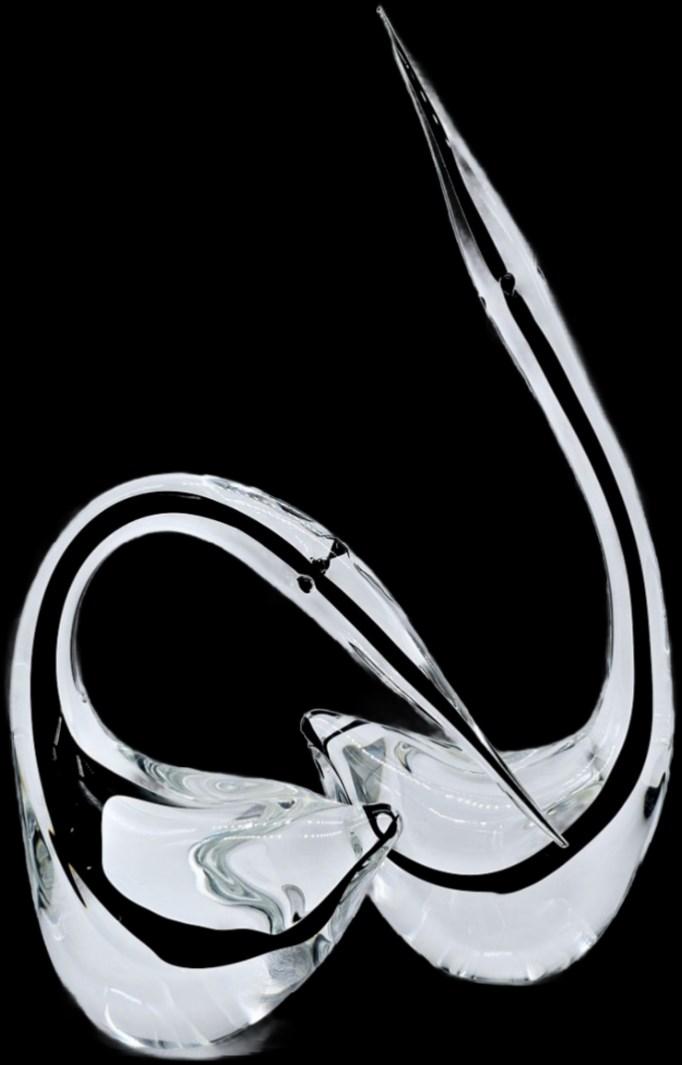
Limited edition sculpture by Peter Shire for Vetreria Vistosi, Murano 1980s


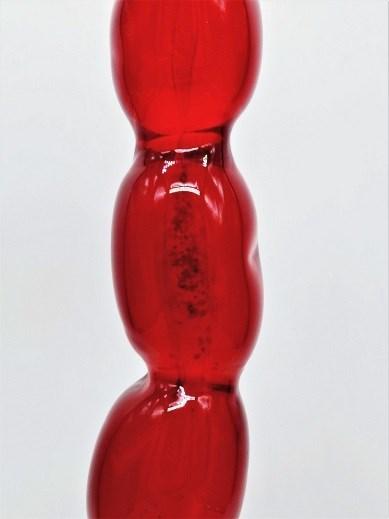

Signed and numbered 5/5 on the bottom.
H. 17.5 x L. 6.375 x W. 4.5 in.
Excellent Vintage Condition.
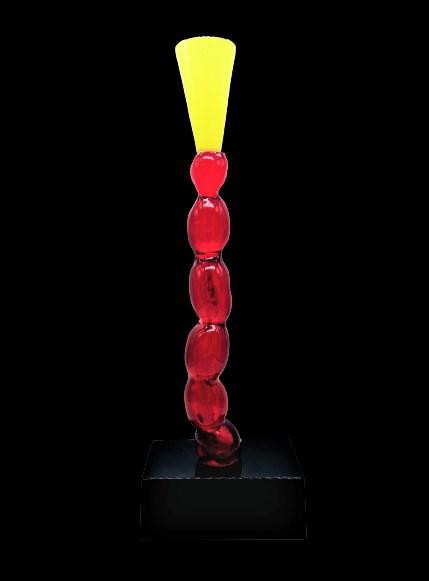
Thick, transparent glass with immersed stripes of red, yellow, blue and green, Fulvio Bianconi for Venini S.p.a., Murano 1991.

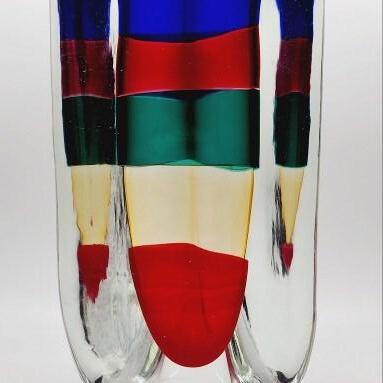

Signed, dated, original label and original box.
H. 12.75 x W. 6 x D. 6 in. - Weight: 24.6 lbs.
Like New Condition

‘Chorus’ is a glass sculpture executed for Marco Polo Glass Gallery and Studio, Murano 1992. Four typical figurines by Licata standing on a black, oval, glass base. Signed and dated. H. 17.5 x L.13.5 x D. 7.25 in. Very Good Vintage condition.
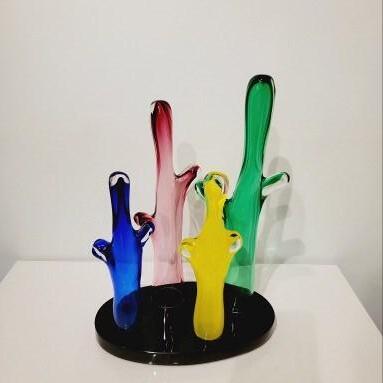

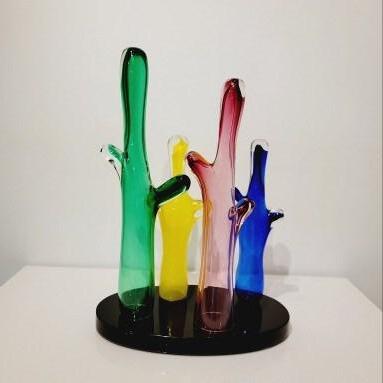

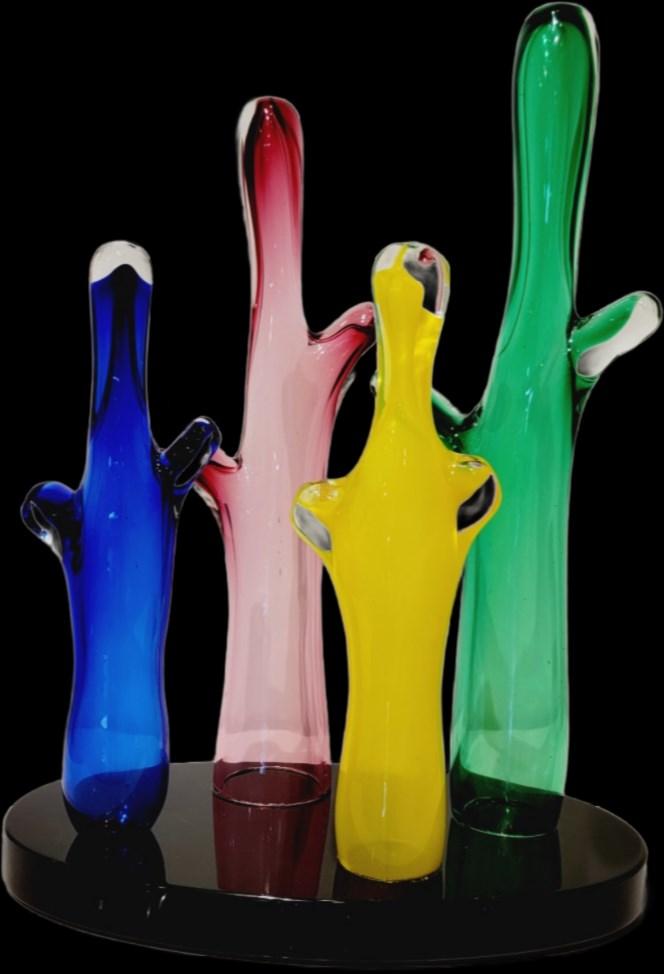
A large brick in Alessandrite glass (it changes color under different condition of light, passing from purple to light blue) with submerged stylized figures, typical of Licata’s work; Marco Polo Glass Gallery and Studio, Murano 1992. Signed EA/LICATA92


This piece comes with a new Lucite base.
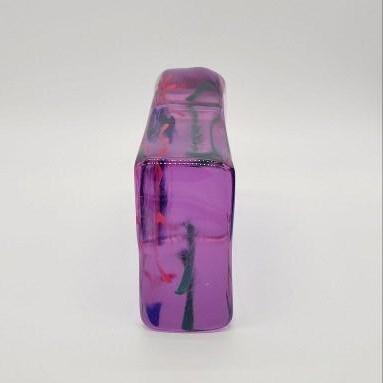
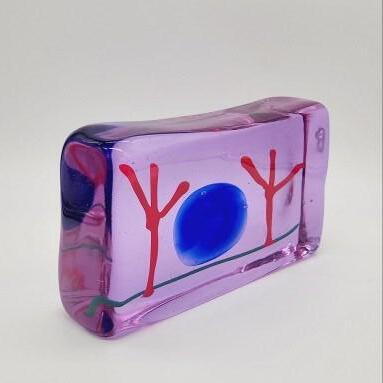
Dimensions:
Glass only: H. 5.25 x L. 9.25 x D. 2.75 in.
On base: H. 7.25 x L. 11.25 x D. 4.75 in.
Excellent Condition

Large decorative cast glass tile in Alessandrite (a type of glass that changes color under different condition of light, passing from purple to light blue) Marco Polo Glass Gallery and Studio, Murano 1995.
Abstract Licata’s typical decors on relief. The piece comes with its original metal stand. Signed, numbered and dated.




Measures:
Glass only: H. 14.5 x W. 14.5 x D. 0.25 in.
Overall: H. 18.5 x W. 15.75 x D. 5.5
Excellent Vintage Condition.

H. 12.5 x W. 9.25 x D. 5.75 in. Excellent Condition
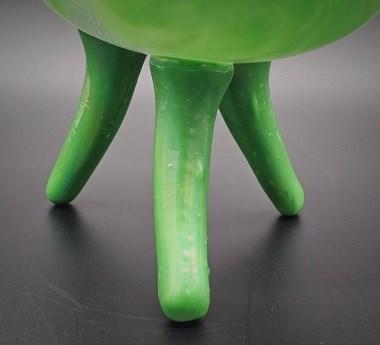

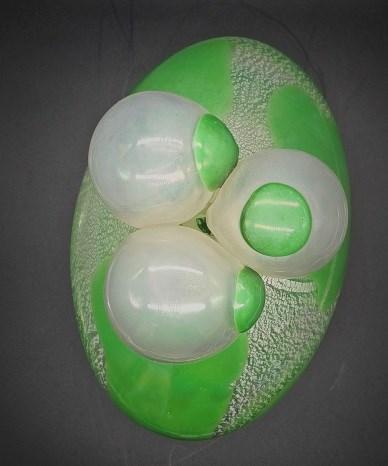
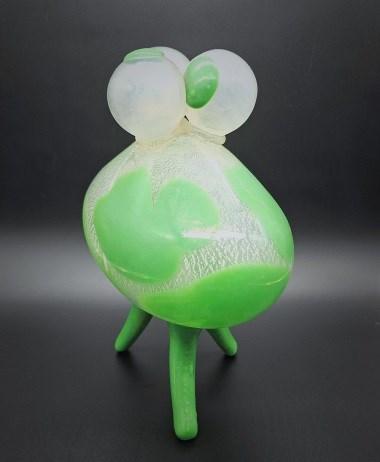
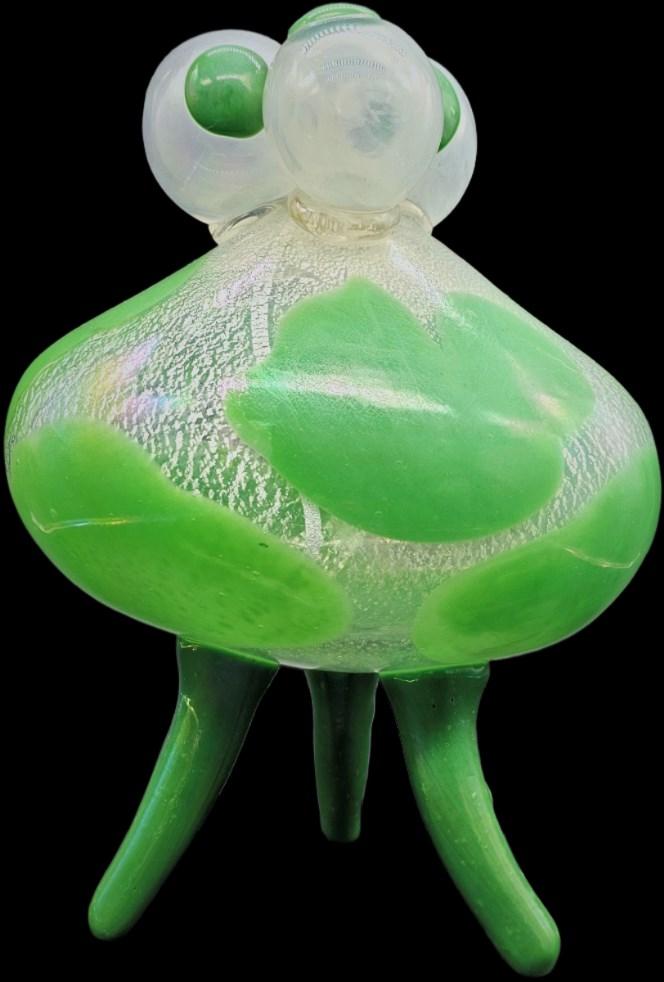
Large glass sculpture by Pino Castagna for Berengo Studio, Murano 1990s. 280 pieces of hand-blown glass with large inclusions of 24 karat gold leaf mounted on 28 metal rods. The 10 pieces on top are closed on the top side. When gently moved, its sound reminds of a real bamboo tree. This piece was been exhibited at WMODA (Wiener Museum of Decorative Arts) in Dania Beach, FL, during an exhibit of Murano Glass in 2018. H. 108 – diam. 15.5 in. Very Good Vintage Condition. Some extra pieces are included.
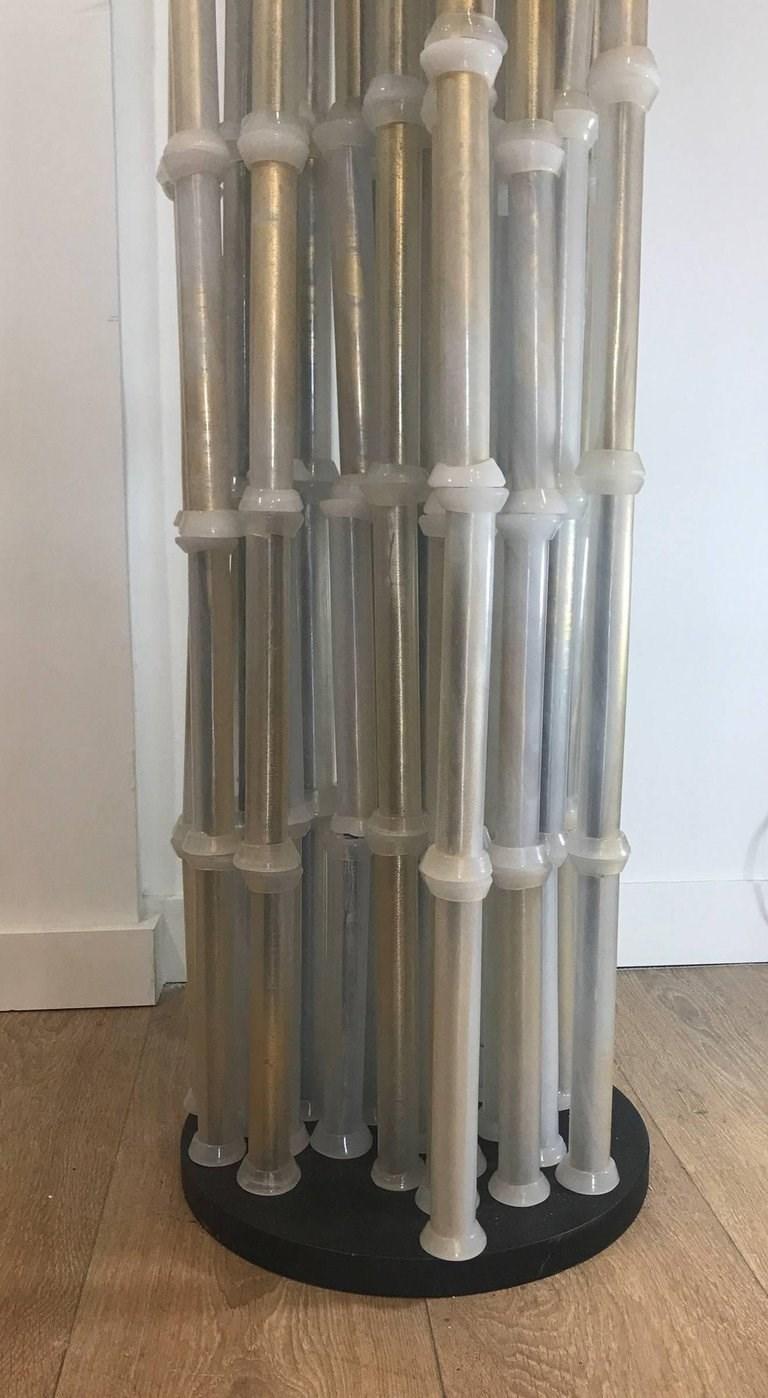
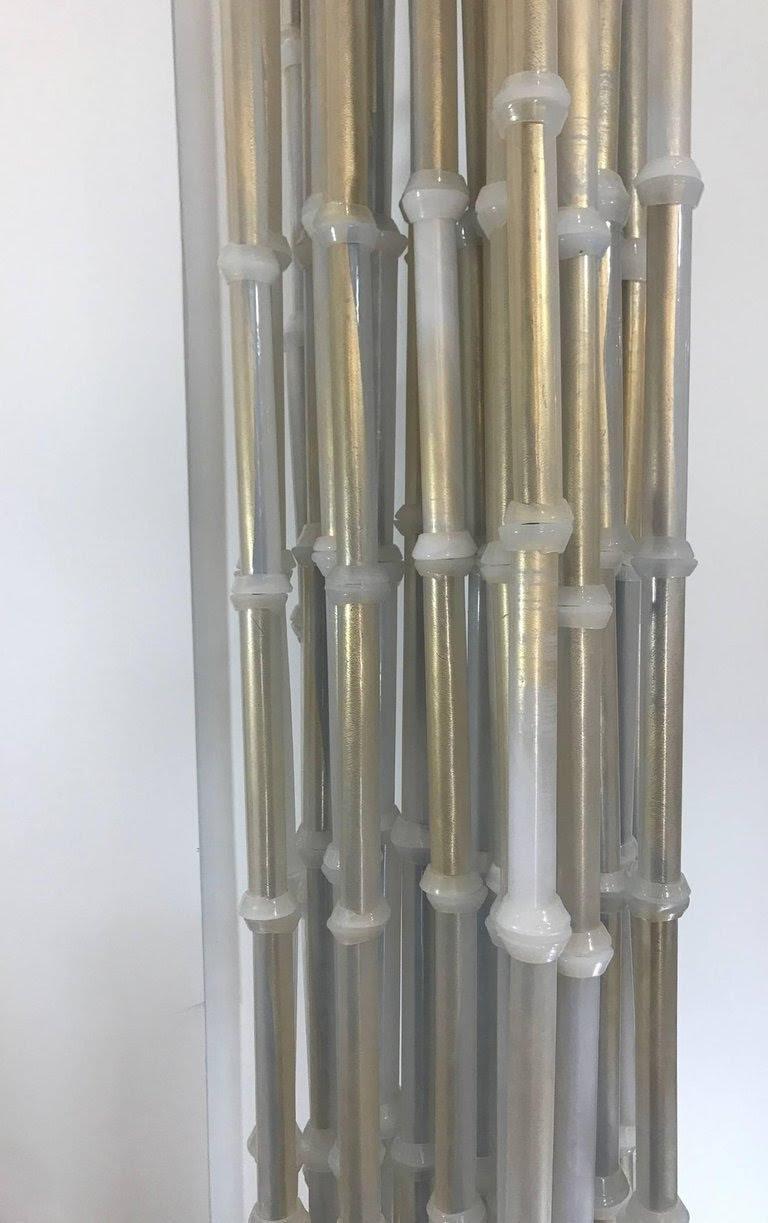


Pre-Colombian style figurine in Scavo (a type of glass reminding archeological finds) by Pino Signoretto, Murano 1990s. Signed on the bottom. H. 10.5 x W. 5 x D. 2.5 in. Excellent Vintage Condition.
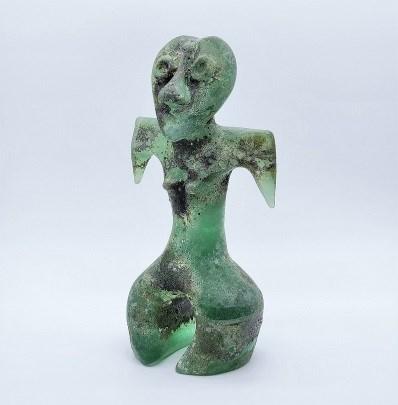
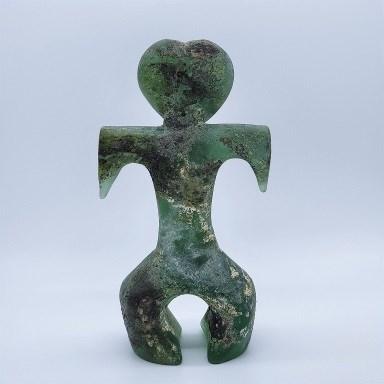
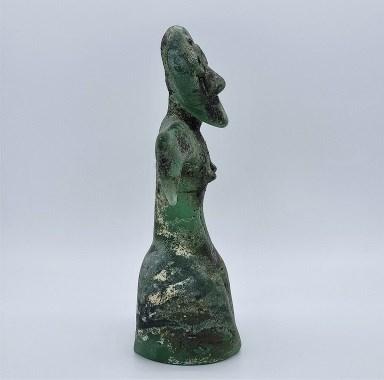


Large sculpture in chalcedony glass on a black base by Loredano Rosin, Murano 1990s. Exquisite execution and wonderful colors, with nuances of purple and yellow.


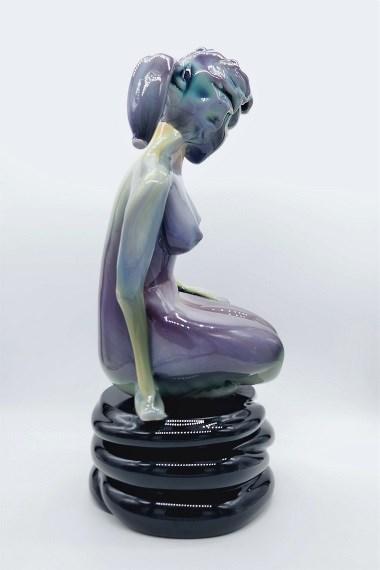
H. 18 x W. 9 x D. 8 in. - Weight: 35 lbs.
Excellent Vintage Condition.

Acorn shaped one-of-a-kind vase by Lino Tagliapietra, Murano 1996. Intricate design obtained by a pattern of handmade glass rods showing filaments of different colors within.



Signed and dated.
H. 13.75; Diam. 14.25 in.
Excellent Vintage Condition
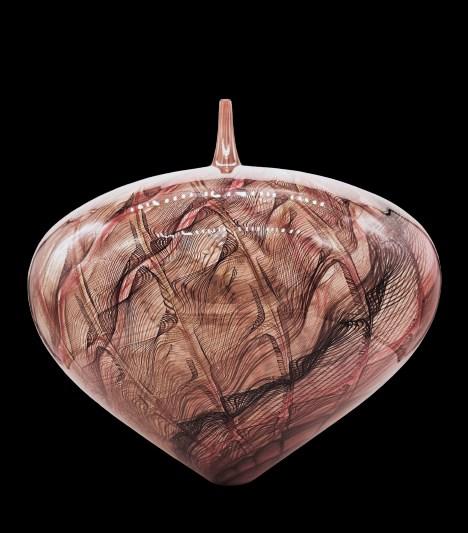
Limited Edition Vase by Gianni Versace for Venini S.p.a., Murano 1998 Transparent glass with horizontal stripes in black and white; red bottom. Mod. 01025 of Venini Catalog. H. 10.25; Diam. 5 in.
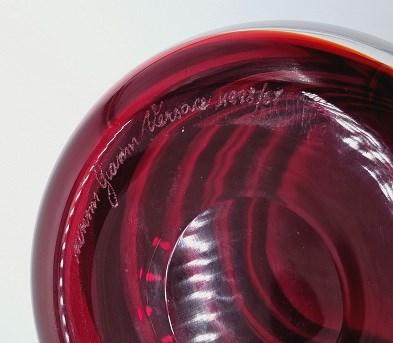


Signed Venini Gianni Versace 1998/67 Excellent Vintage Condition.


Large glass brick in transparent glass with sommerso stylized symbols that are Riccardo Licata’s fingerprint, Marco Polo Glass Gallery and Studio, Murano 1999. Limited edition, Signed and numbered 20/99. This piece comes with a new Lucite base. Glass only: H. 5.25 x L. 8.25 x D.3 in.

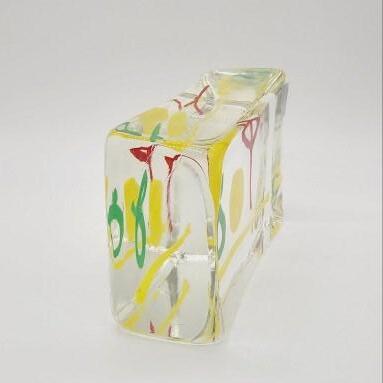

On base: H. 7.25 x L. 10.25 x D. 5 in. Excellent Condition.


Large bowl in transparent and chalcedony glass by Dino Rosin, Murano, 2000s. Applied pad mark, signed.



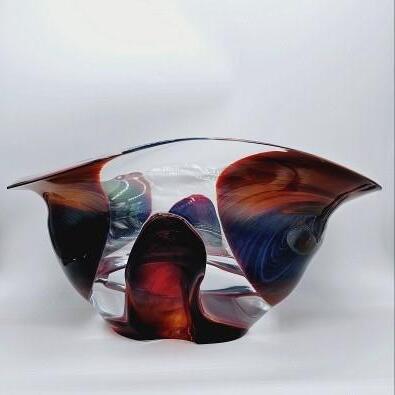
H. 8.375 x L. 16.75 x D. 10.5
Excellent Vintage Condition.
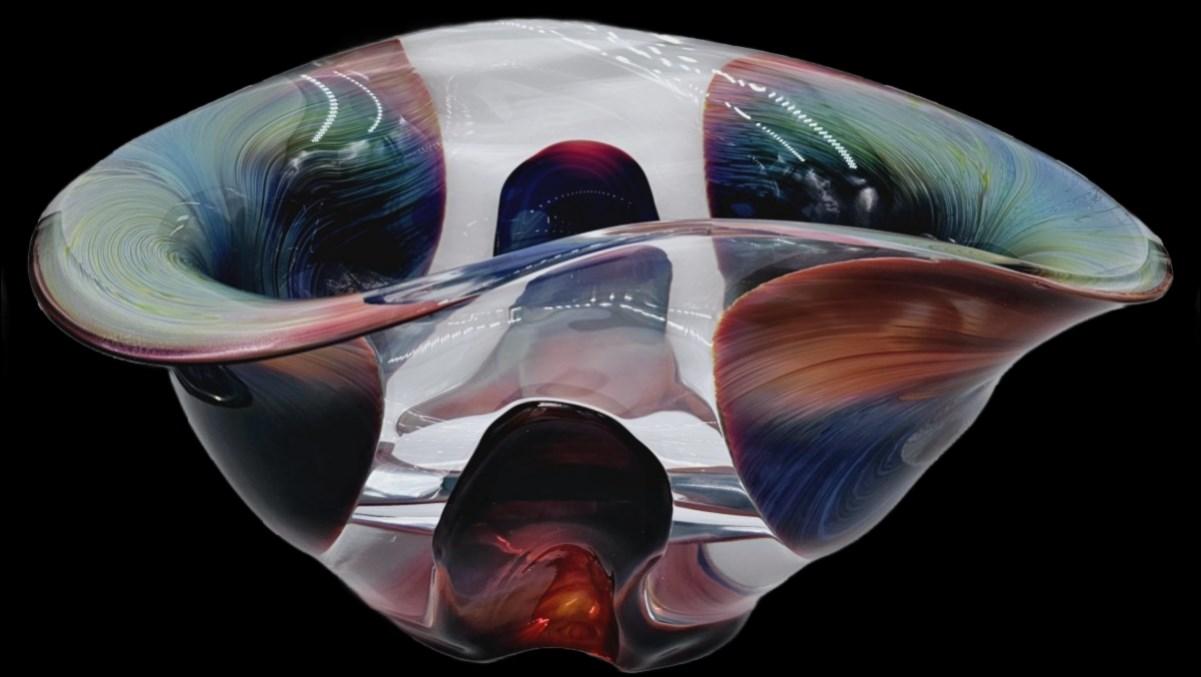
Sculpture of a woman in Alessandrite (it changes color under different condition of light, passing from purple to light blue) and chalcedony glass by Dino Rosin, Murano, 2000s. Applied pad mark, signed. H. 13 x L. 7 x D. 4.75 in. Excellent Vintage Condition.
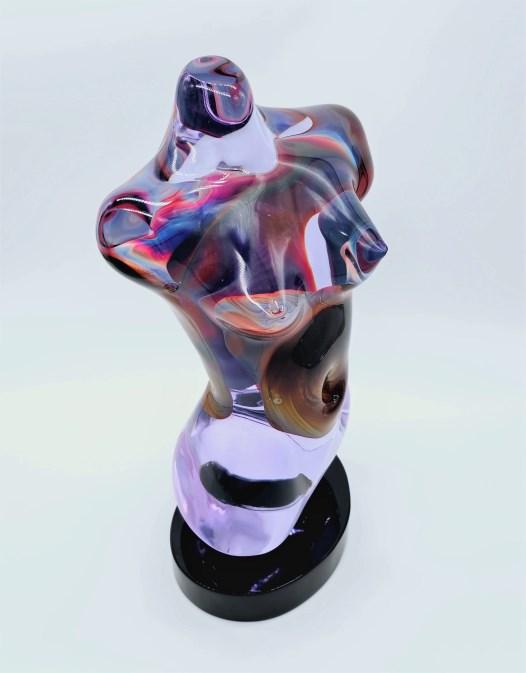
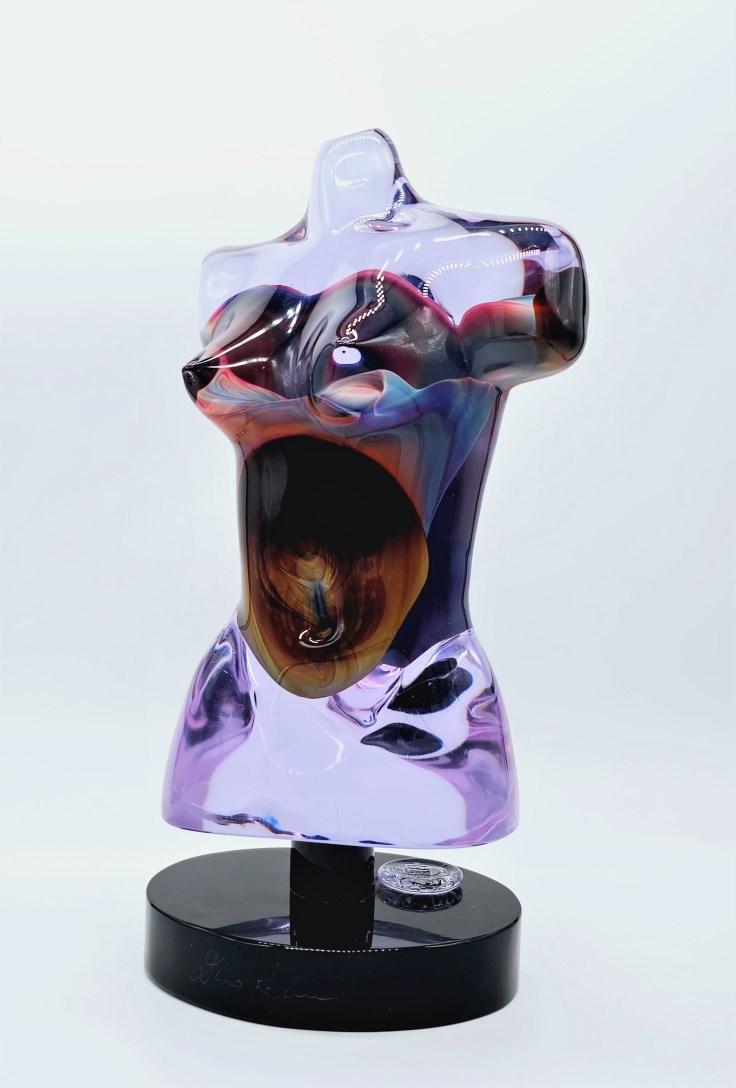


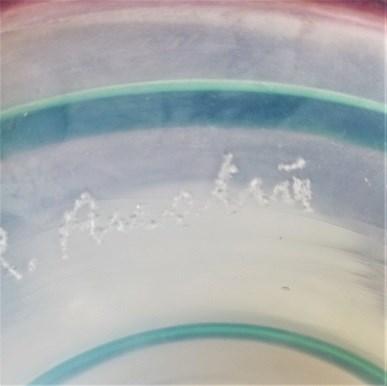
Large vase with applied filaments all over the surface to design figures of men holding spears and standing by a fire; Renato Anatrá, Murano 2000s. Two handles, decorated by uninterrupted spirals; top and base decorated by colorful filaments.

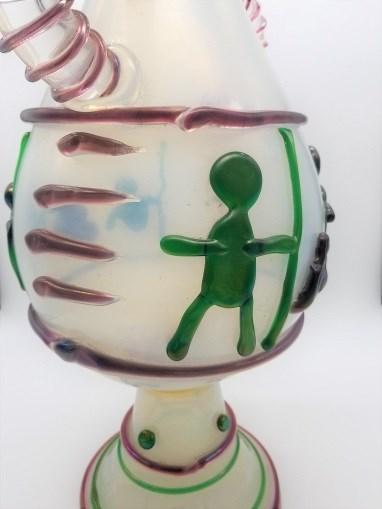
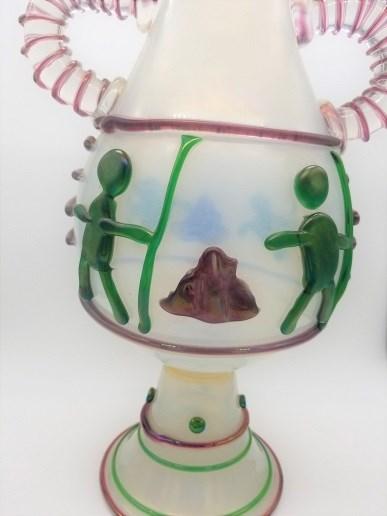
x W. 12.25 x
in. Very Good Condition.

Sculpture of a young lady covered by a long and intricated drapery, design and execution by Pino Signoretto, Murano 2008.

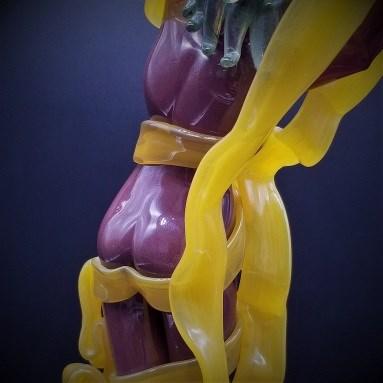
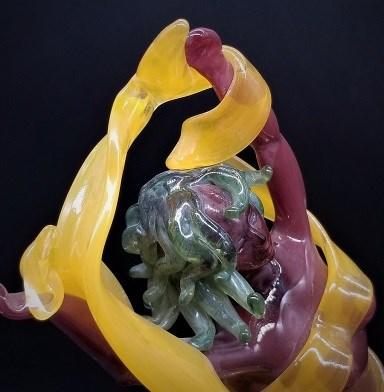
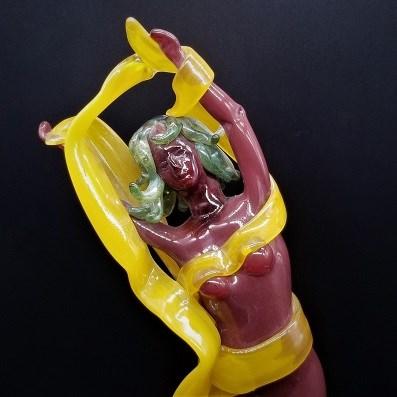
Signed and dated.
H. 16.25 x W.8 x D. 4.75 in. Excellent Vintage Condition.
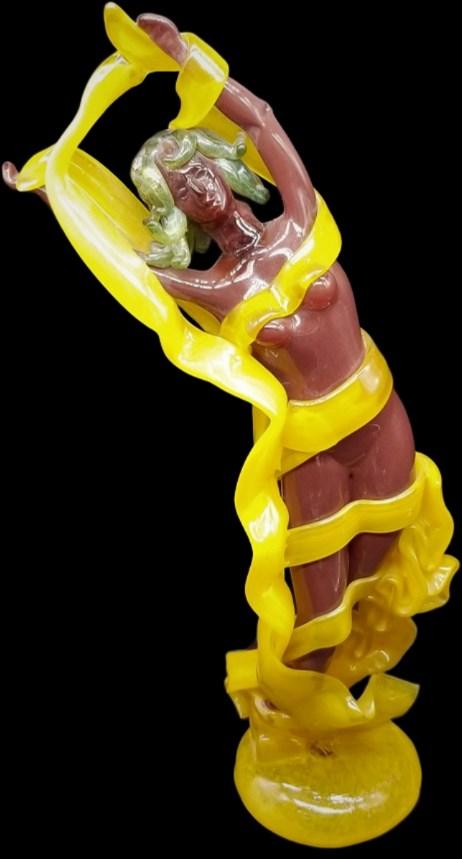
Large vase in the shape of a head, Mario Badioli, Murano 2000s. Applied colored filaments and patches. H. 18.75 x W. 14.25 x D. 6.75 in. Very Good Condition.

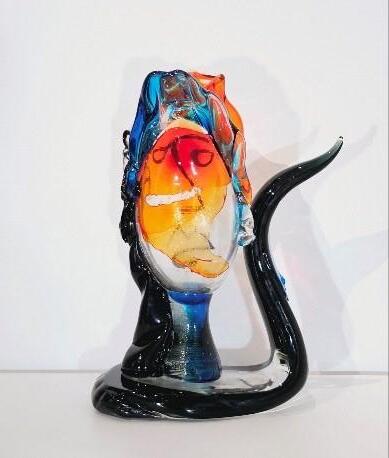
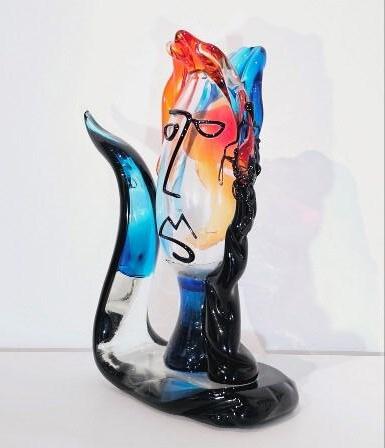

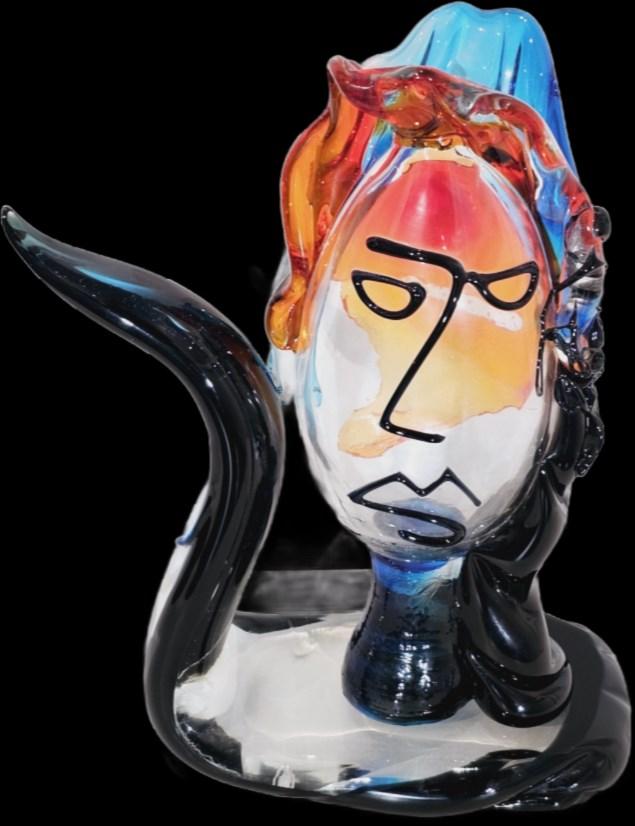
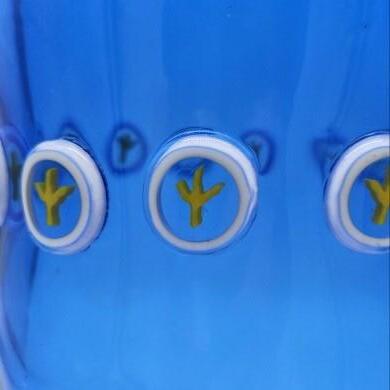
Limited edition vase in thick transparent blue glass with half a crown on the top, Marco Polo Glass Gallery and Studio, Murano 2000s. A circle of 14 murrine with Licata's iconic symbols, decors the body.


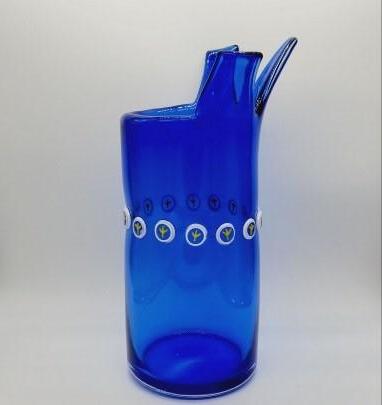
Signed and numbered II/X
H. 15.25 - Diam. 8 in. Excellent Condition.

Large shell in chalcedony glass, Murano, 2021 H.7.5 x L. 16 x D. 6 in. Signed. Mint Condition.
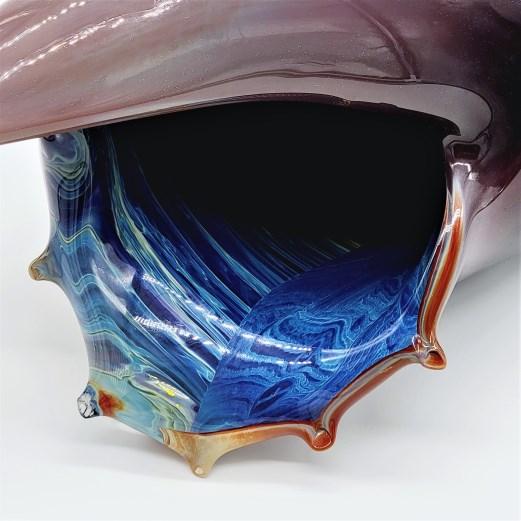
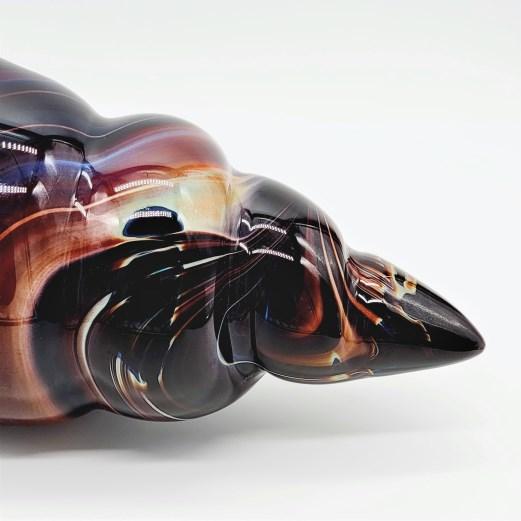
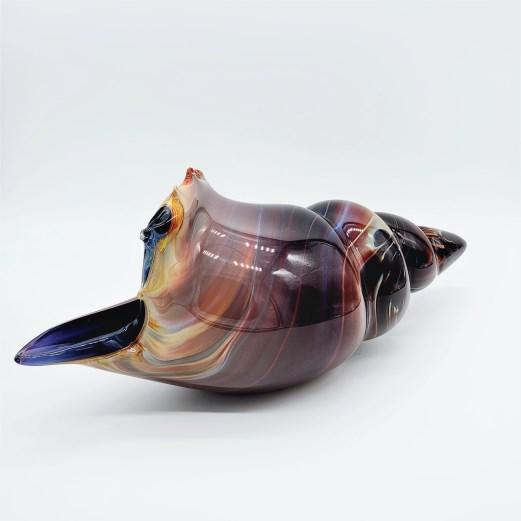


Large shell in transparent glass with strong iridescence

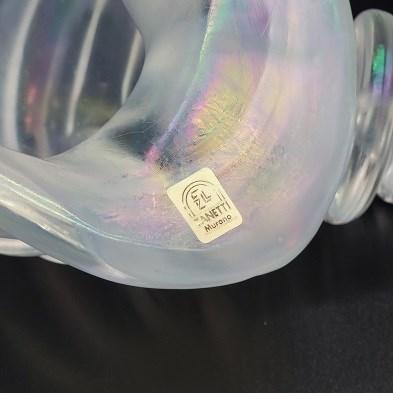

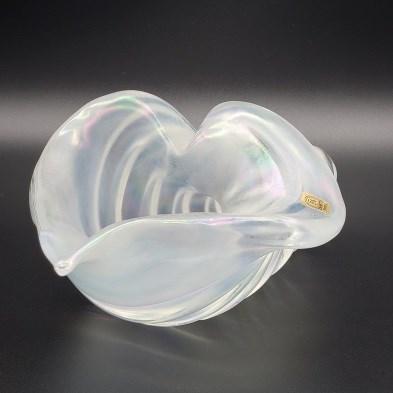

Large shell in transparent glass with strong iridescence by Oscar Zanetti, Murano 2021. Original label; Signed.
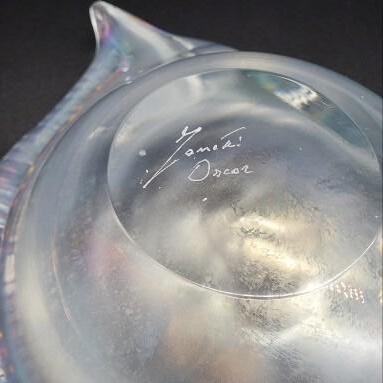




Large shell in transparent glass with strong iridescence

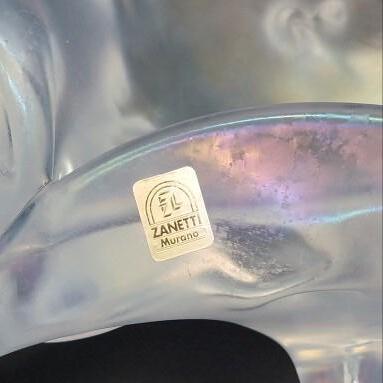

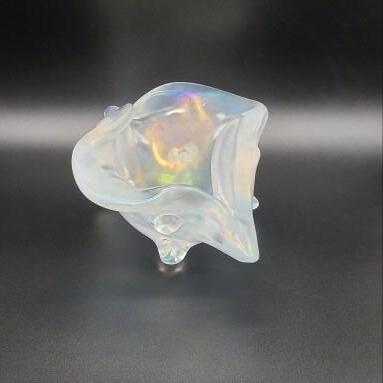

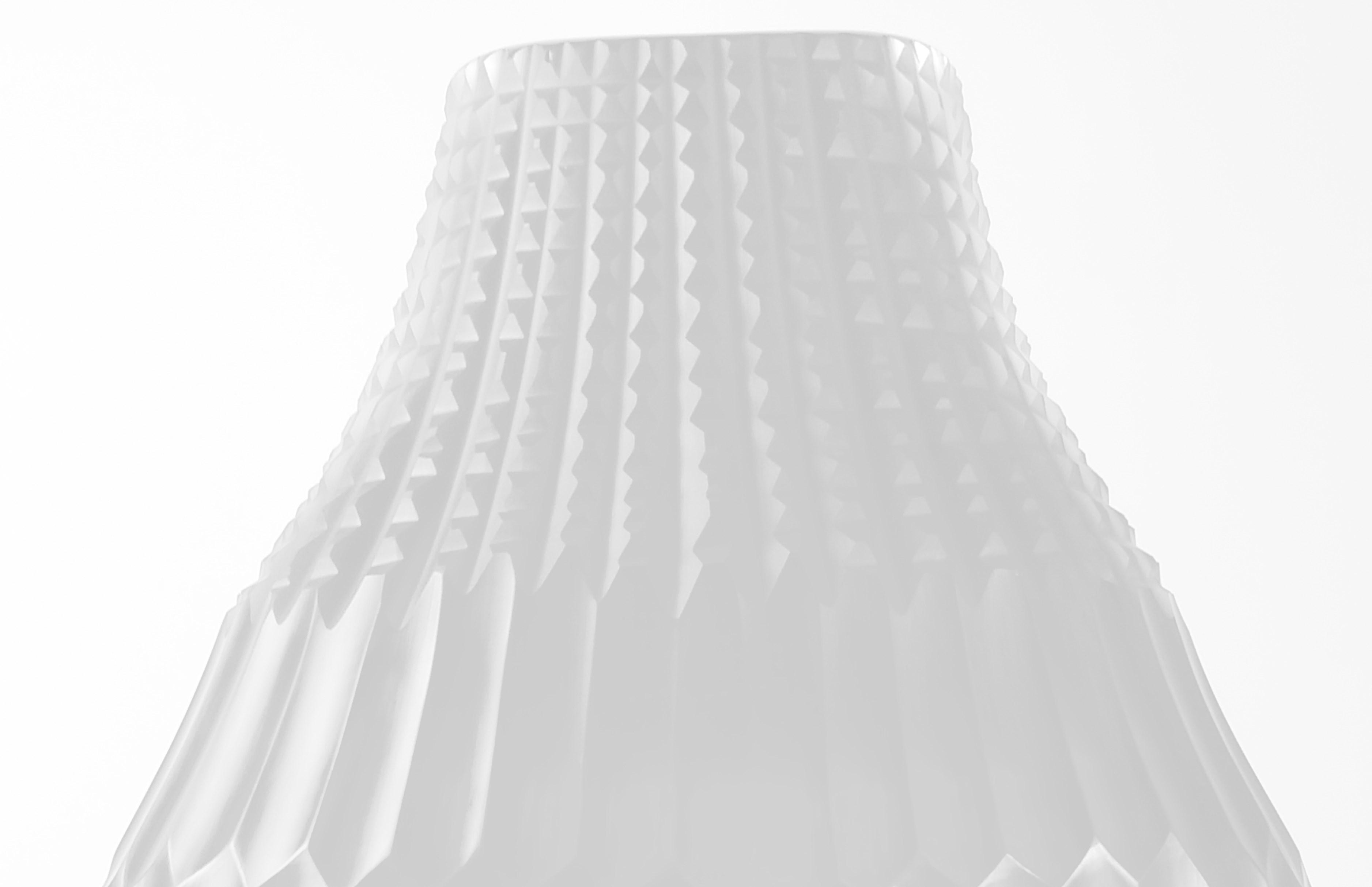

Large vase made of 5 glass layers of different colors, completely carved and polished by hand.

 Pietro and Riccardo Ferro, Murano 2020. H. 19.5 x W. 11.625 x D. 7.5 in. New Condition.
Pietro and Riccardo Ferro, Murano 2020. H. 19.5 x W. 11.625 x D. 7.5 in. New Condition.
Large vase made of 5 layers of glass of different colors, completely carved and polished by hand.

Pietro and Riccardo Ferro, Murano 2022.
Condition.
Large vase made of 4 layers of glass of different colors, completely carved and polished by hand. Pietro and Riccardo Ferro, Murano 2023. H. 20.50 x W. 11 x D. 7.5 in. New Condition.

Large vase made of 4 glass layers of different colors, completely carved and polished by hand.

Large vase made of 3 layers of glass of different colors, completely carved and polished by hand. Pietro and Riccardo Ferro, Murano 2023. H. 20 x W. 10.25 x D. 7 in. (it changes color under different condition of light, passing from purple to light blue) New Condition.

 P. & R. FERRO“OWL”
P. & R. FERRO“OWL”


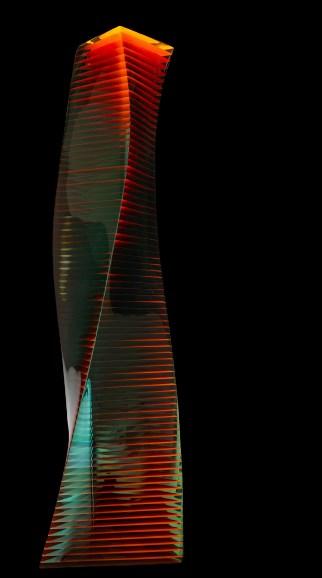



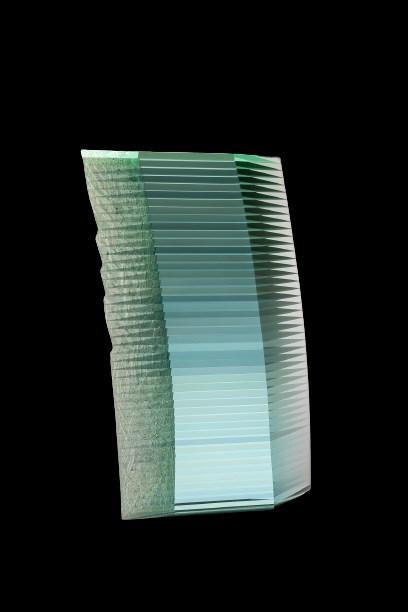 WESLEY NEAL RASKO“SILENT MORNING”
Painted, Laminated, Cut, and Polished Glass H. 19 x W. 14.50 x D. 15.50 in. 2022
WESLEY NEAL RASKO“SILENT MORNING”
Painted, Laminated, Cut, and Polished Glass H. 19 x W. 14.50 x D. 15.50 in. 2022
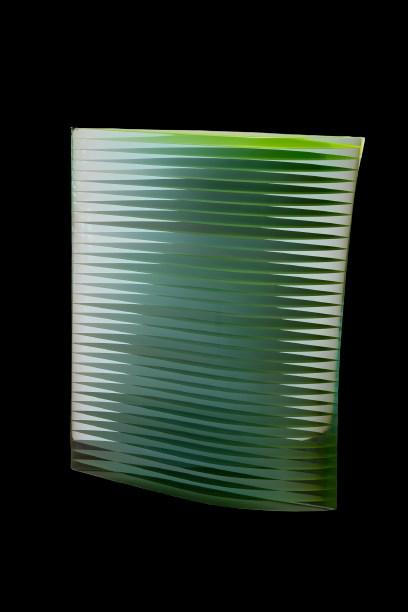


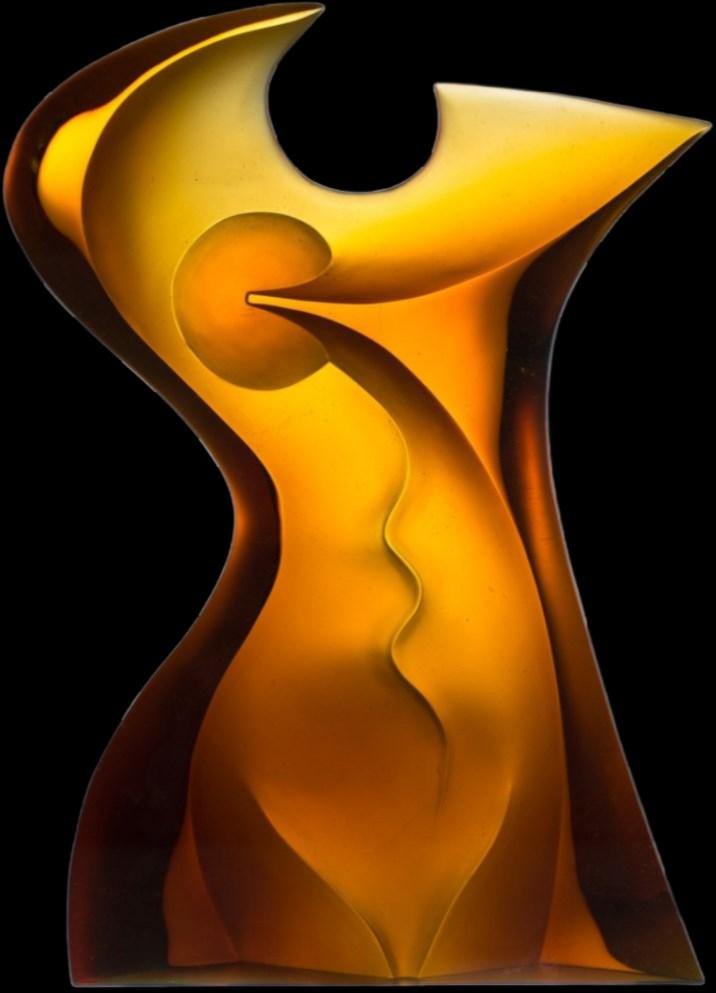
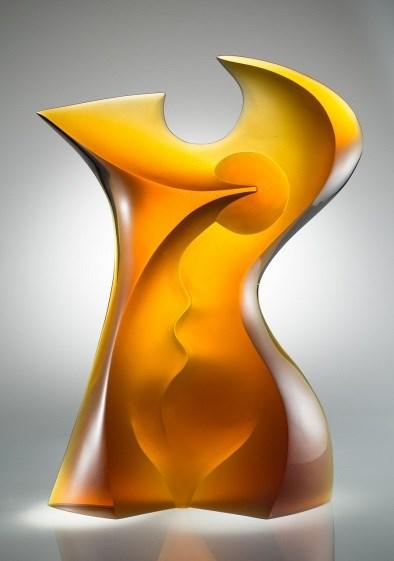



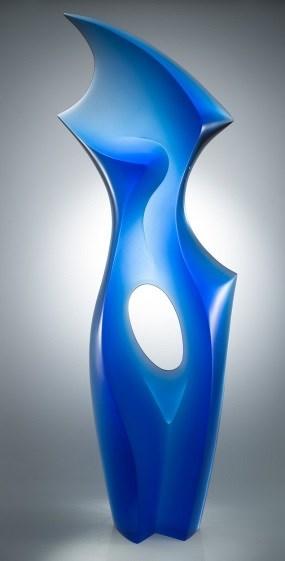
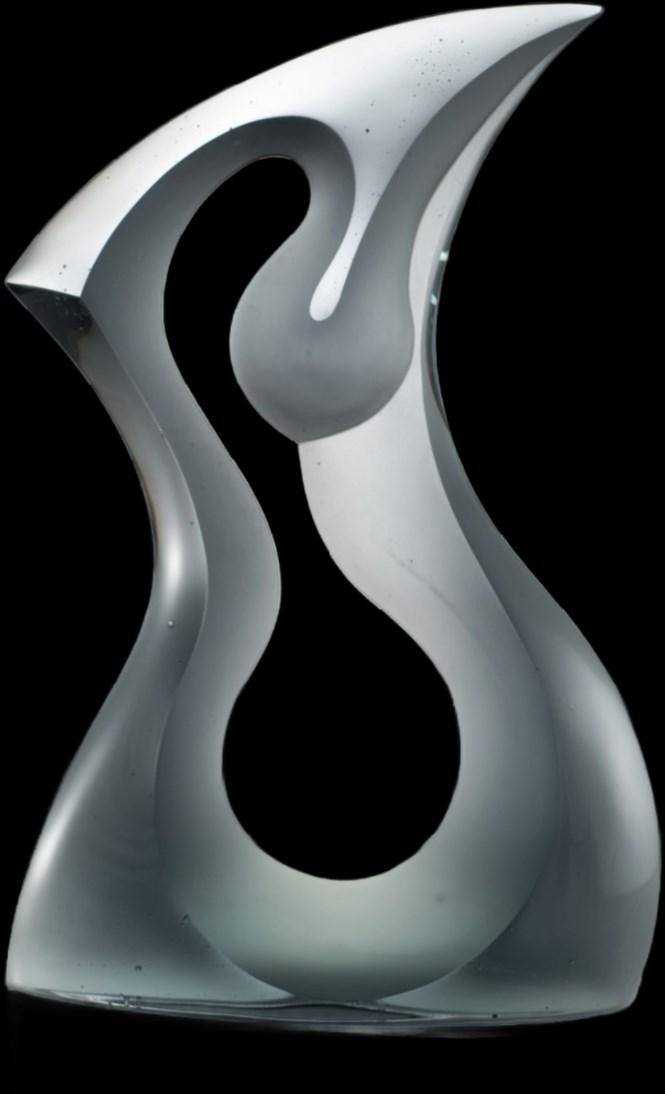




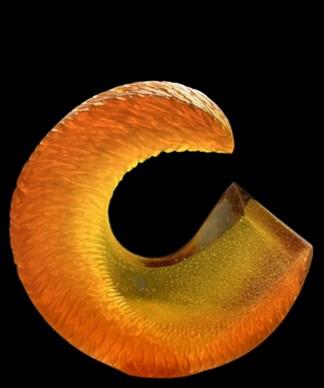

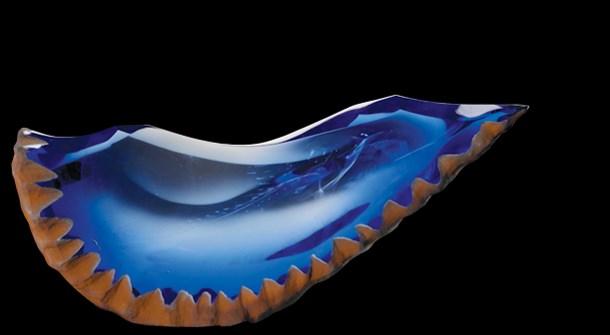
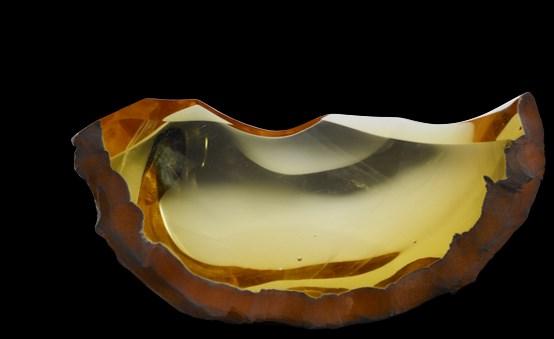


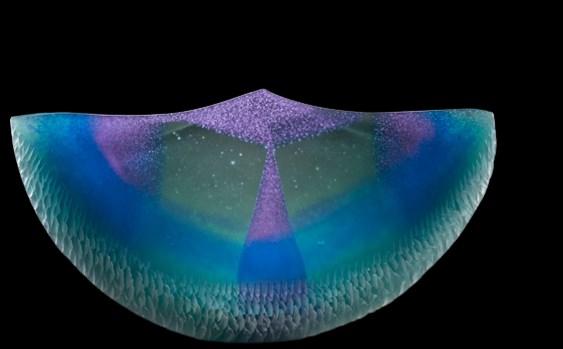


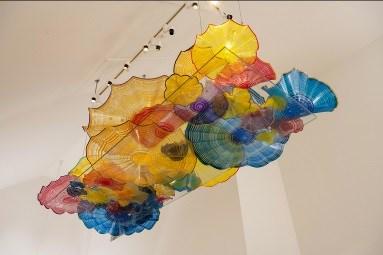



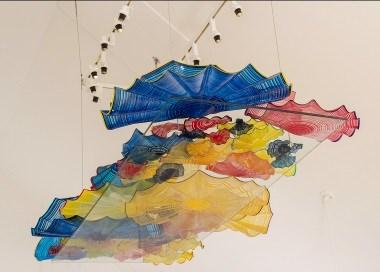

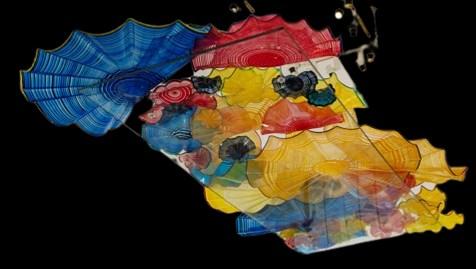
Polyvitro Ceiling Installation
H. 36 x W. 96 in.
Chihuly Registration Number: 98.360.in
1998

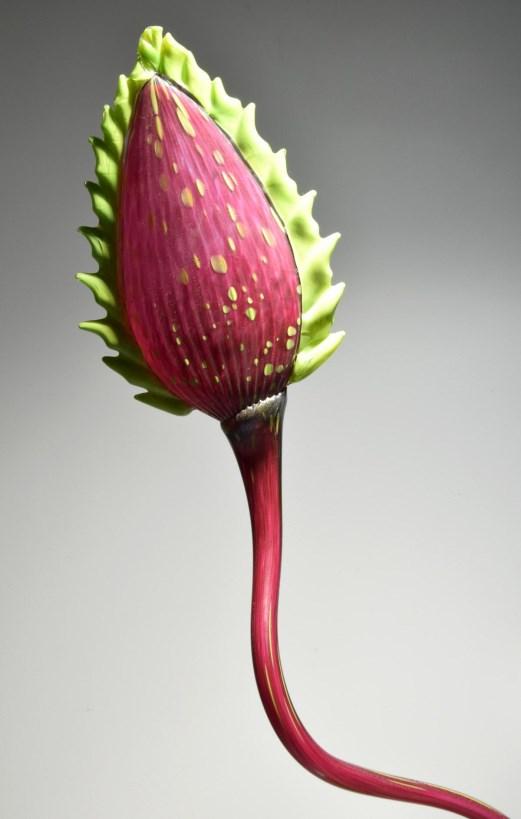







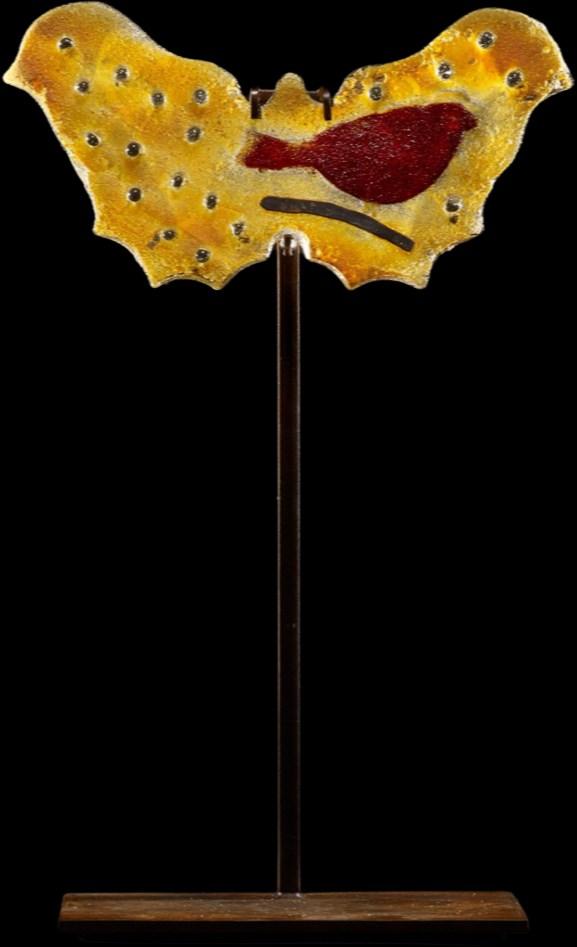

MARLENE ROSE“VIBRANT BLUE FREESTANDING RING”

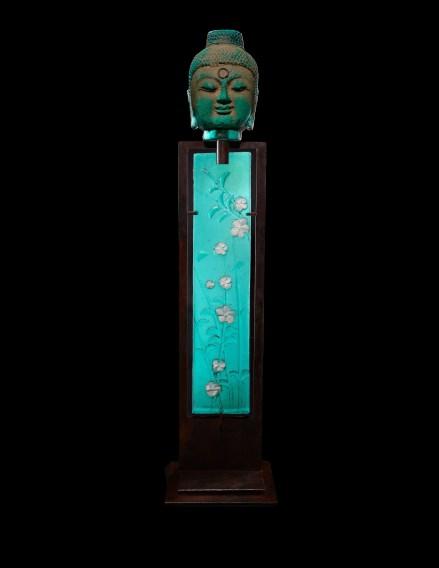





 SMALL SPRINGWATER CLASSIC WAVE”
Glass
H. 11.5 x W. 10 x D. 10 in.
SMALL SPRINGWATER CLASSIC WAVE”
Glass
H. 11.5 x W. 10 x D. 10 in.
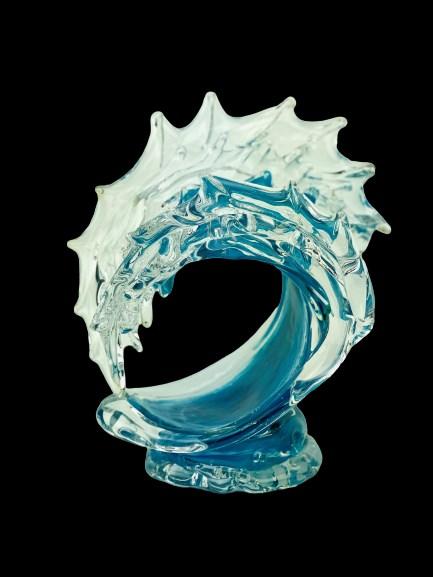
 DAVID WIGHT“XXL EMERALD GENESIS”
Glass
H. 27 x W. 16 x D. 14 in.
DAVID WIGHT“XXL EMERALD GENESIS”
Glass
H. 27 x W. 16 x D. 14 in.


“20th Century Murano, Czech, and American Glass Masters
JUNE 9 JULY 9, 2023
